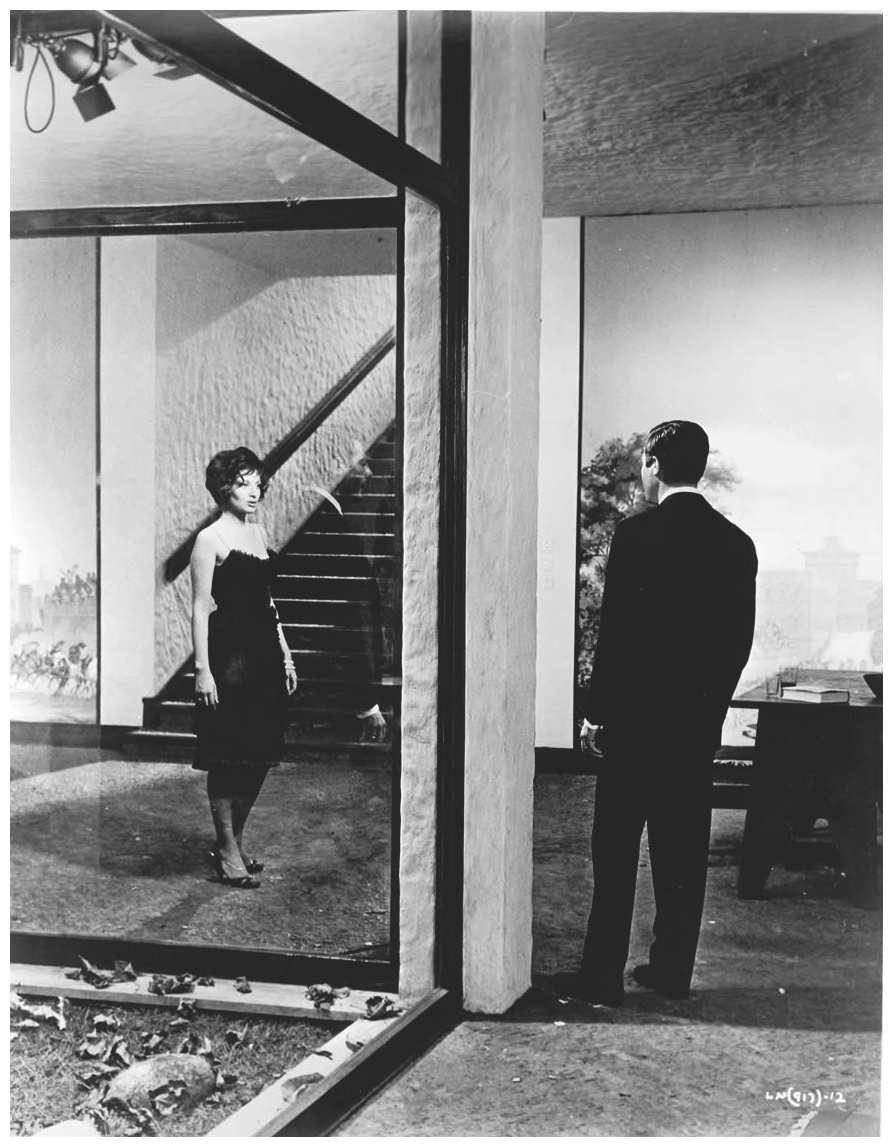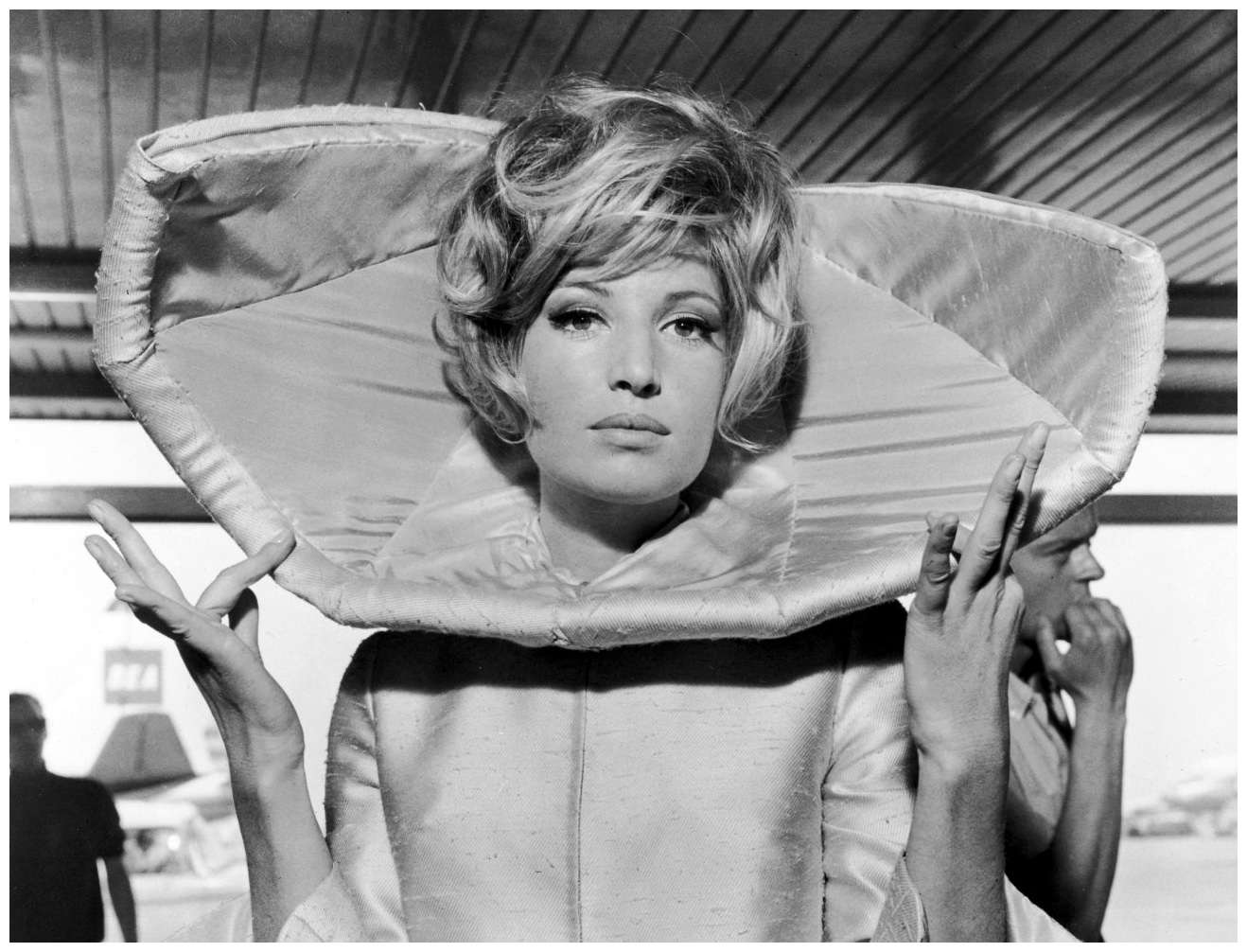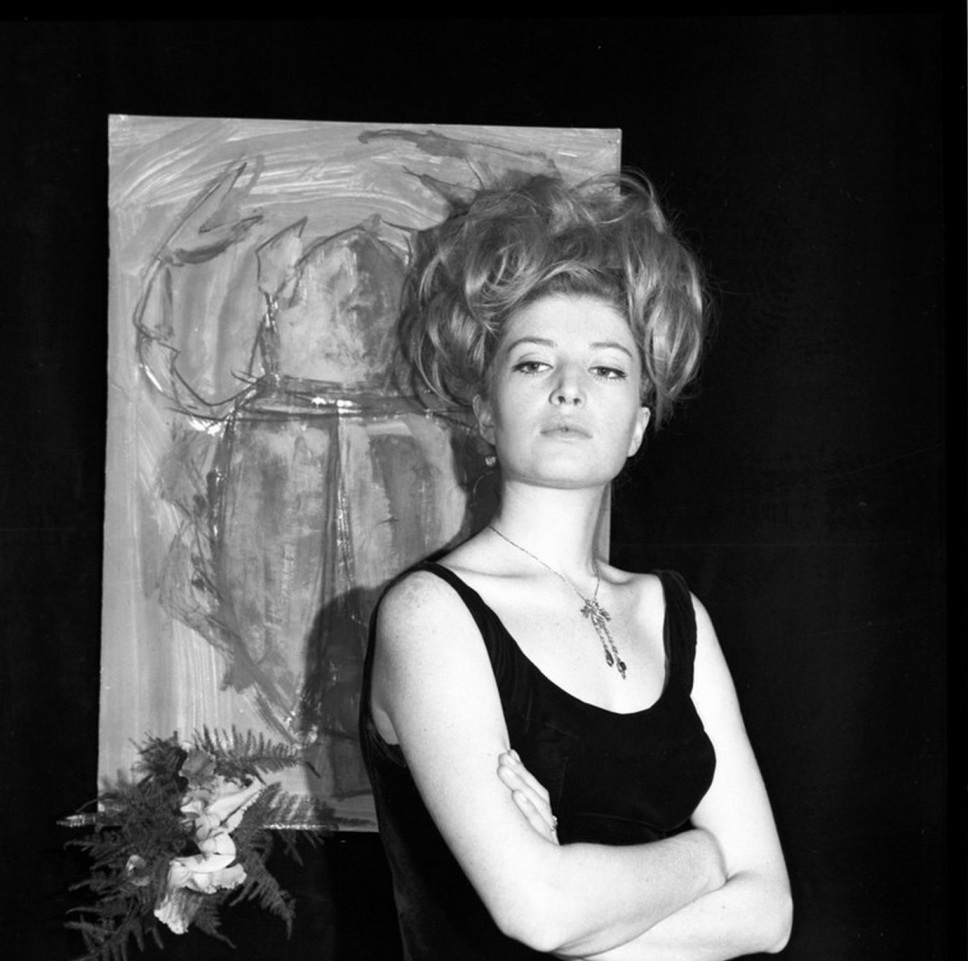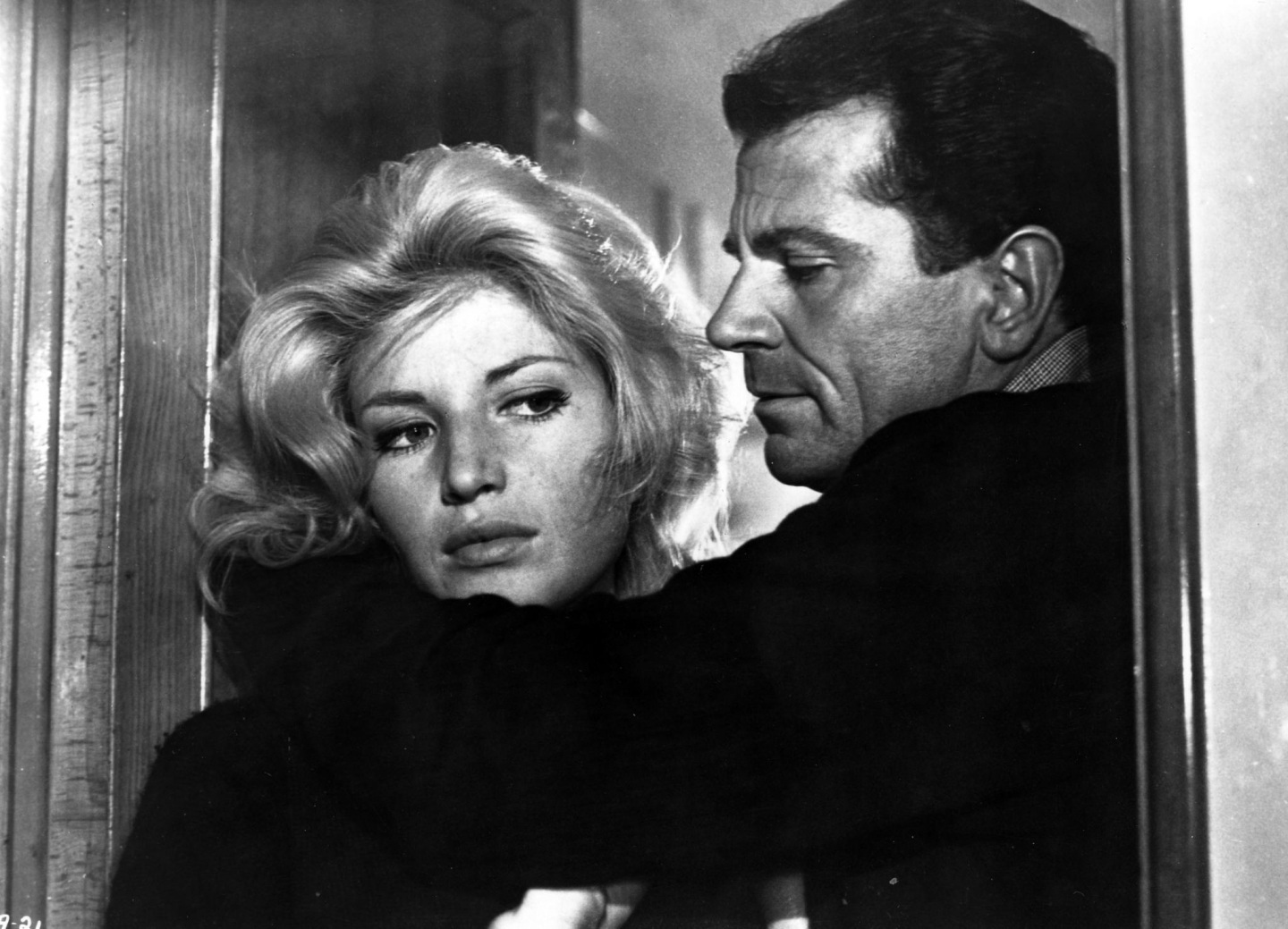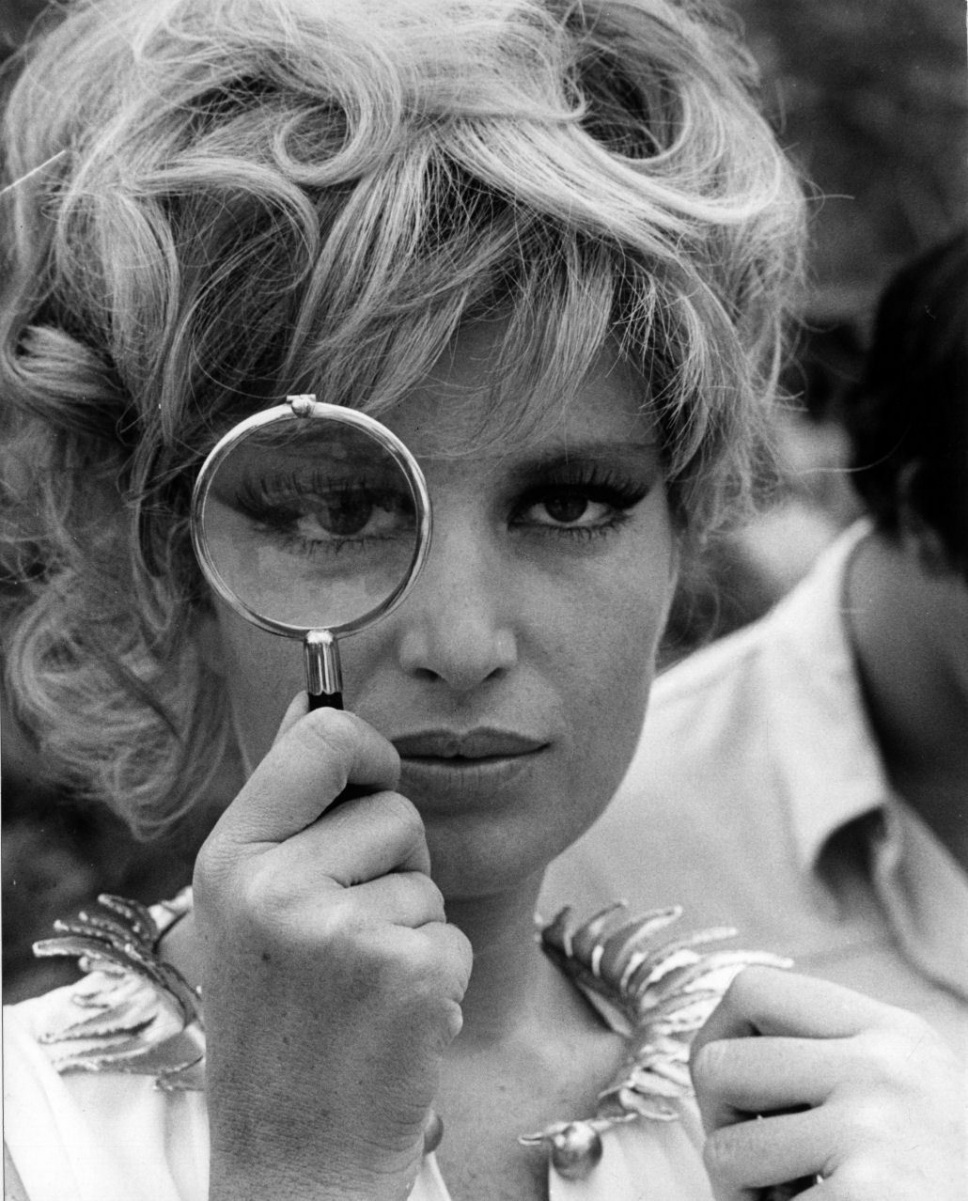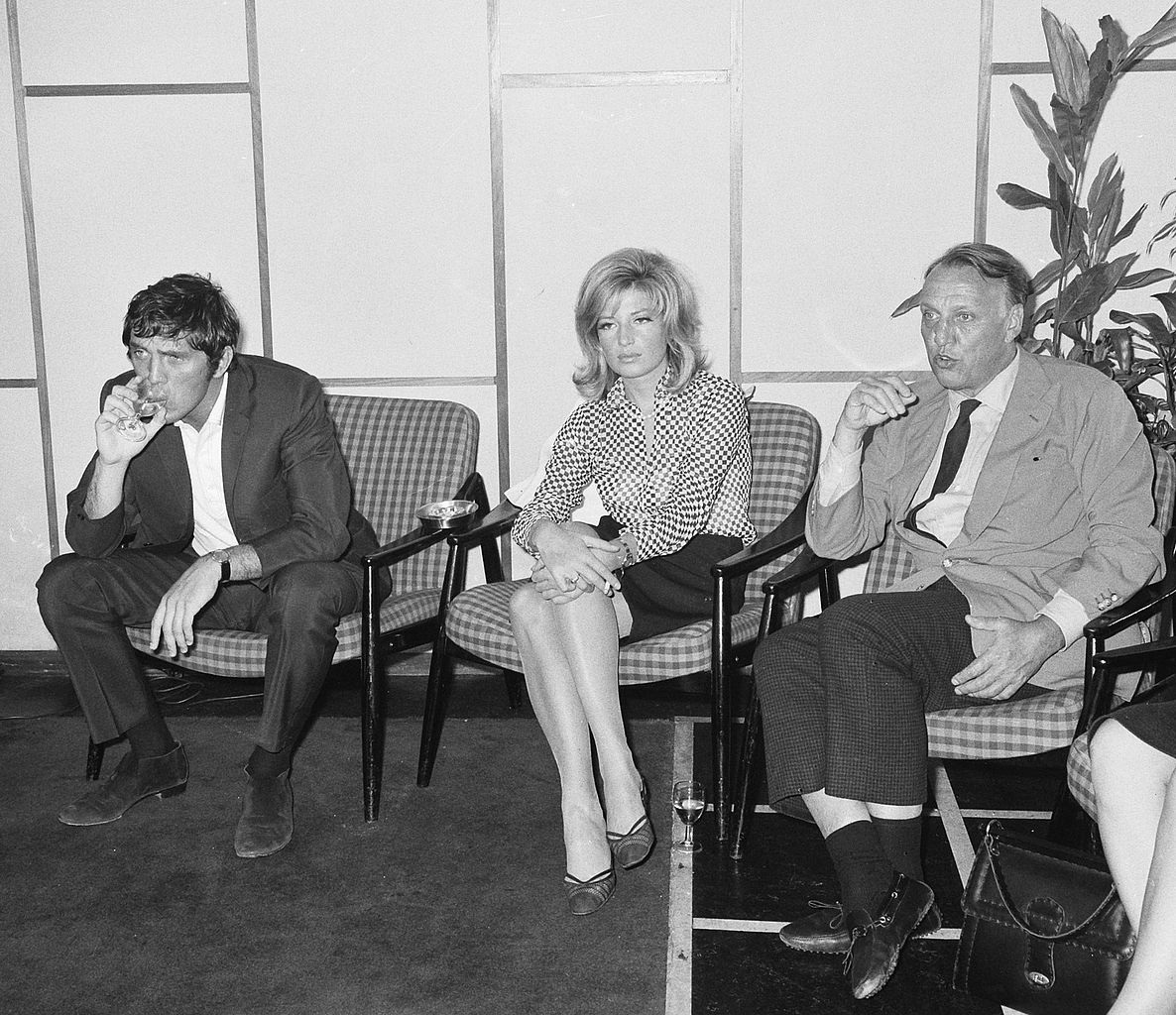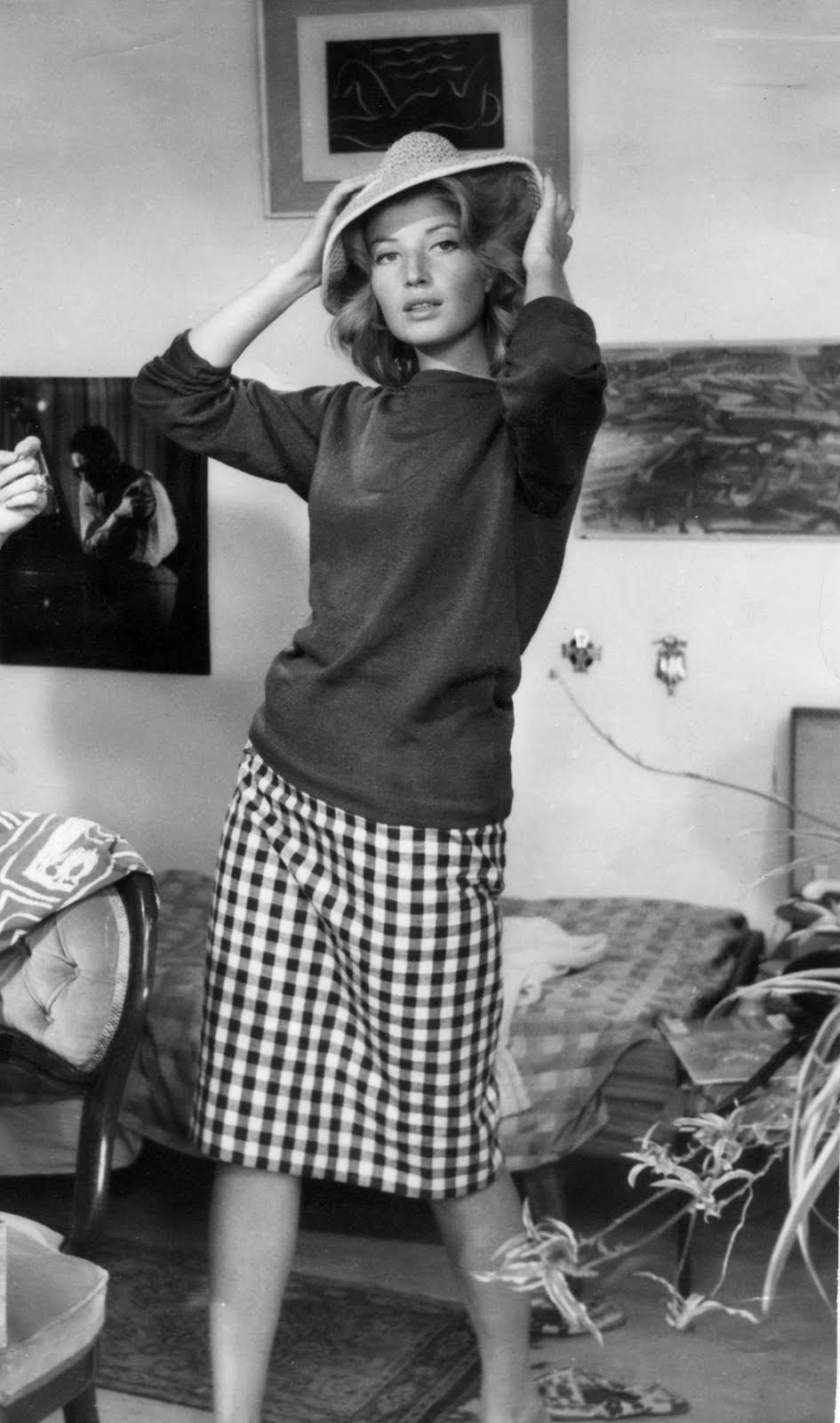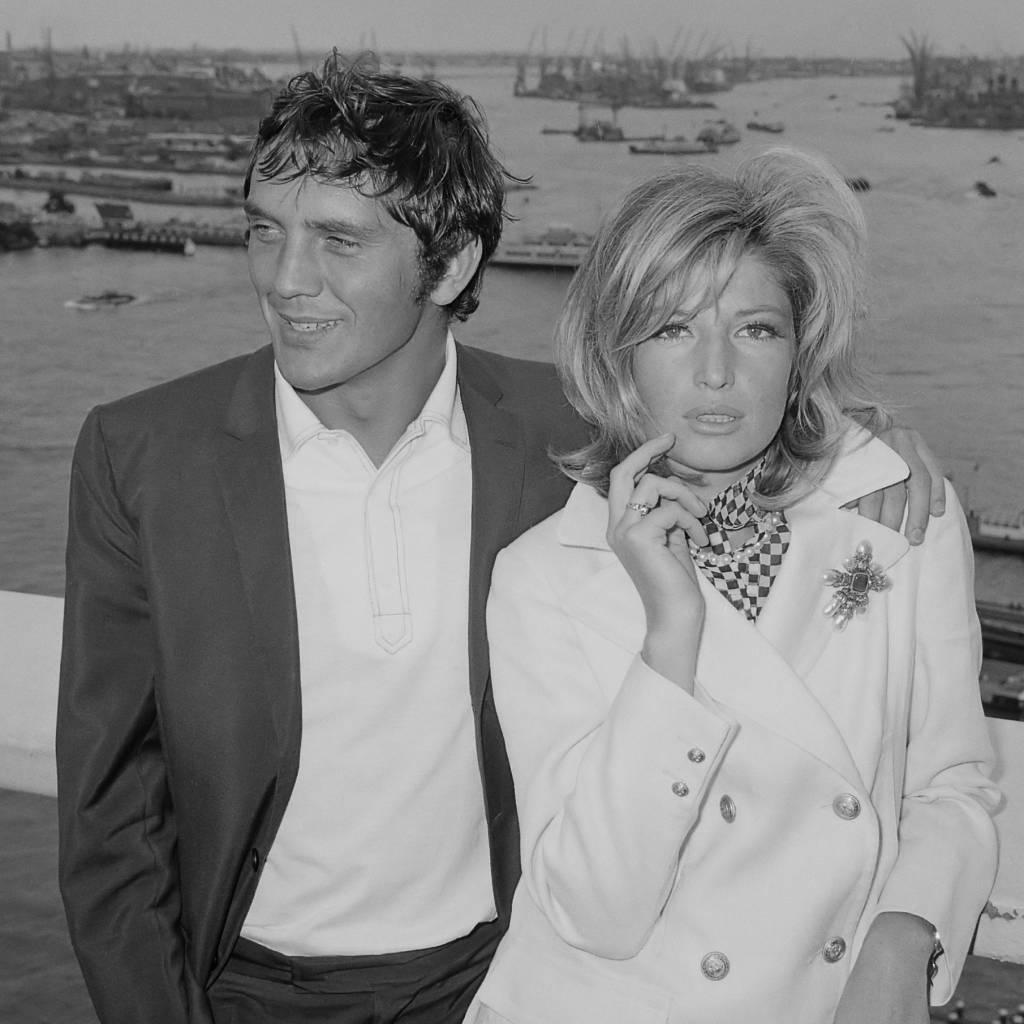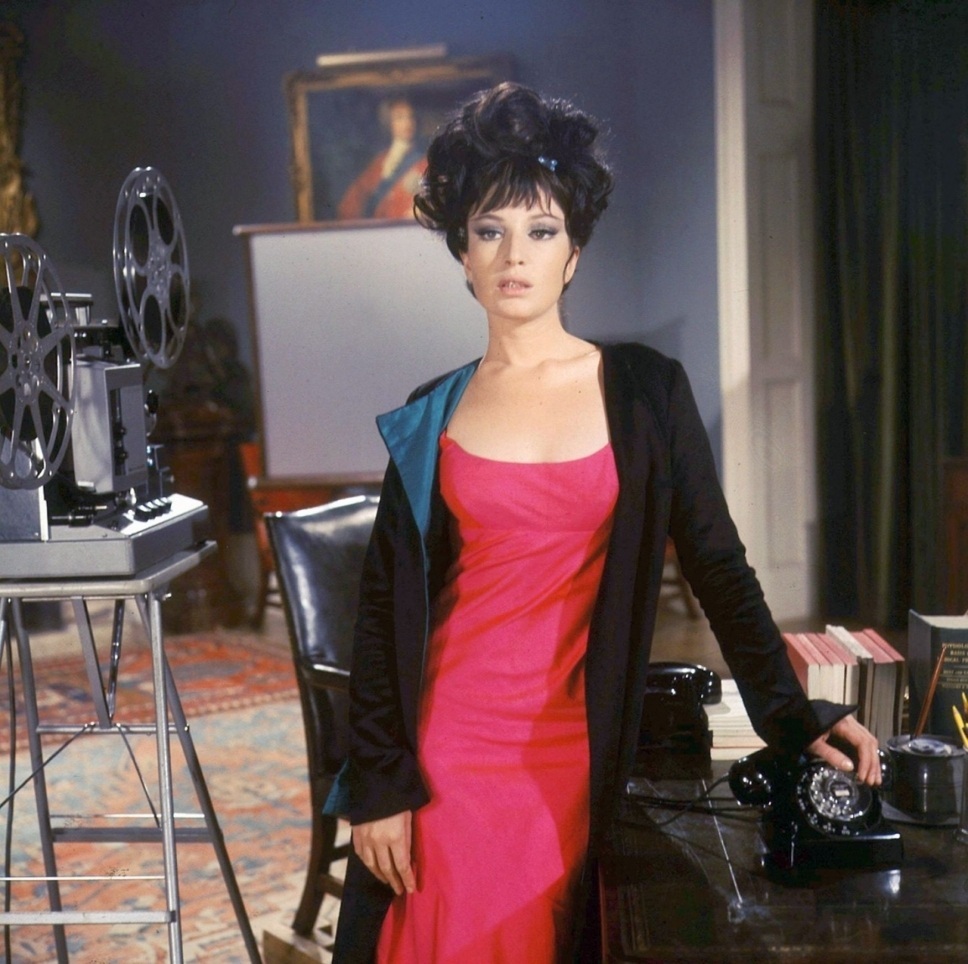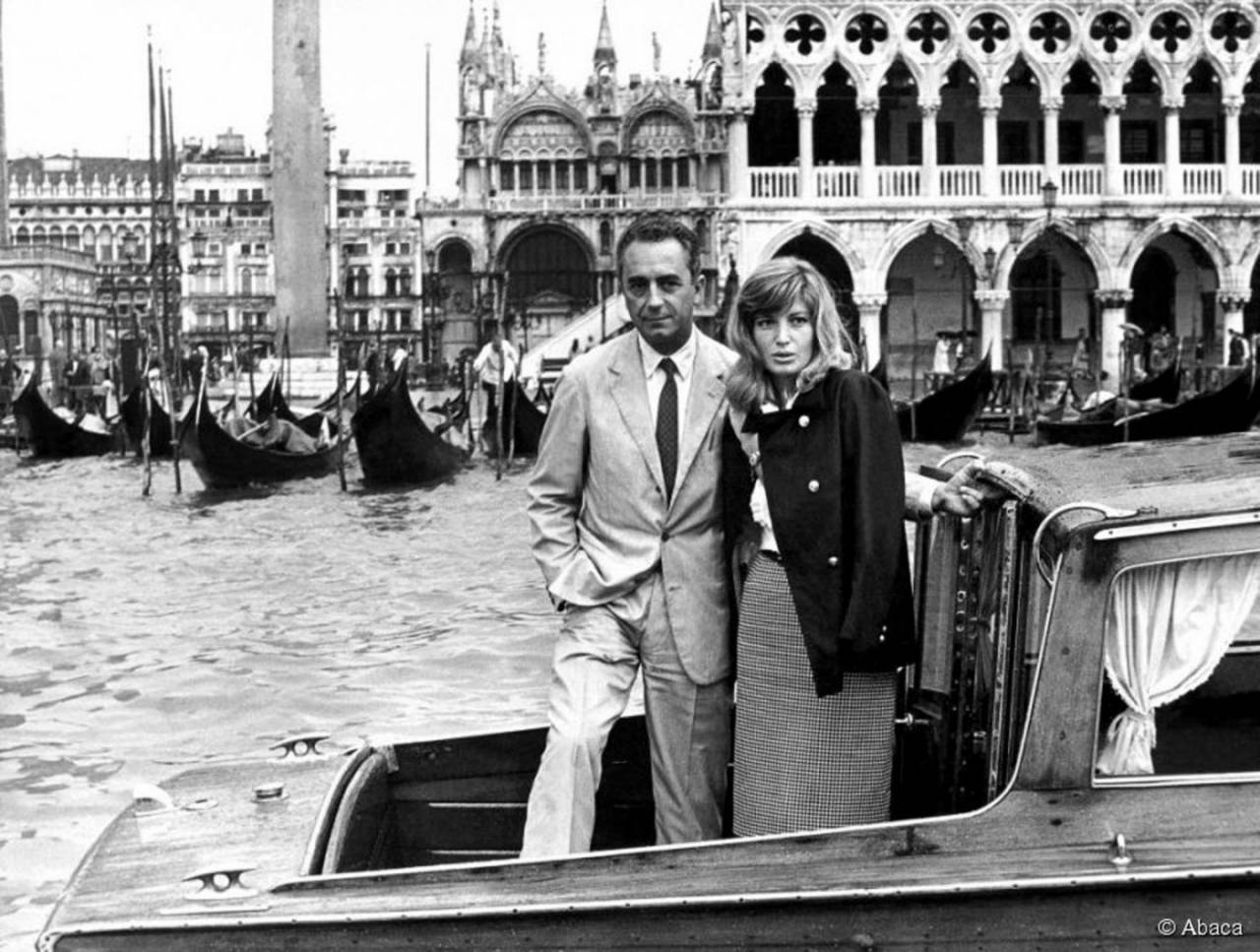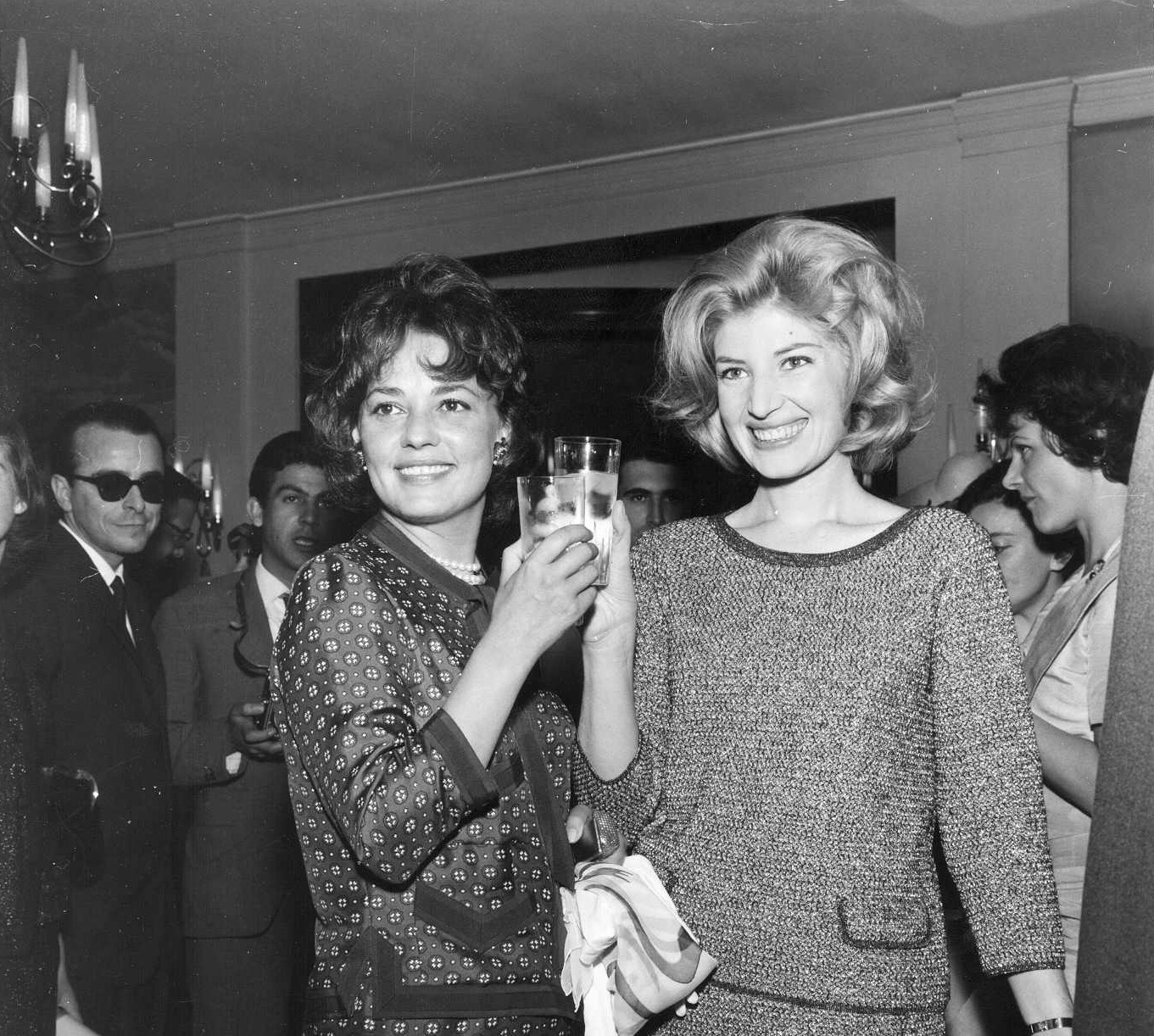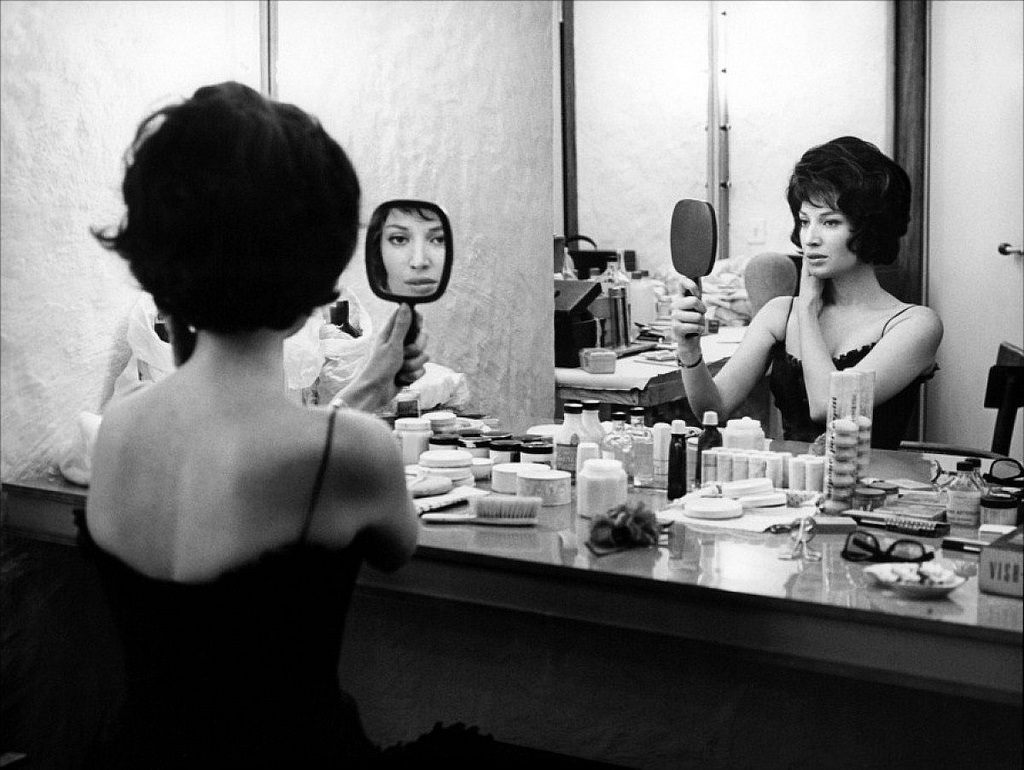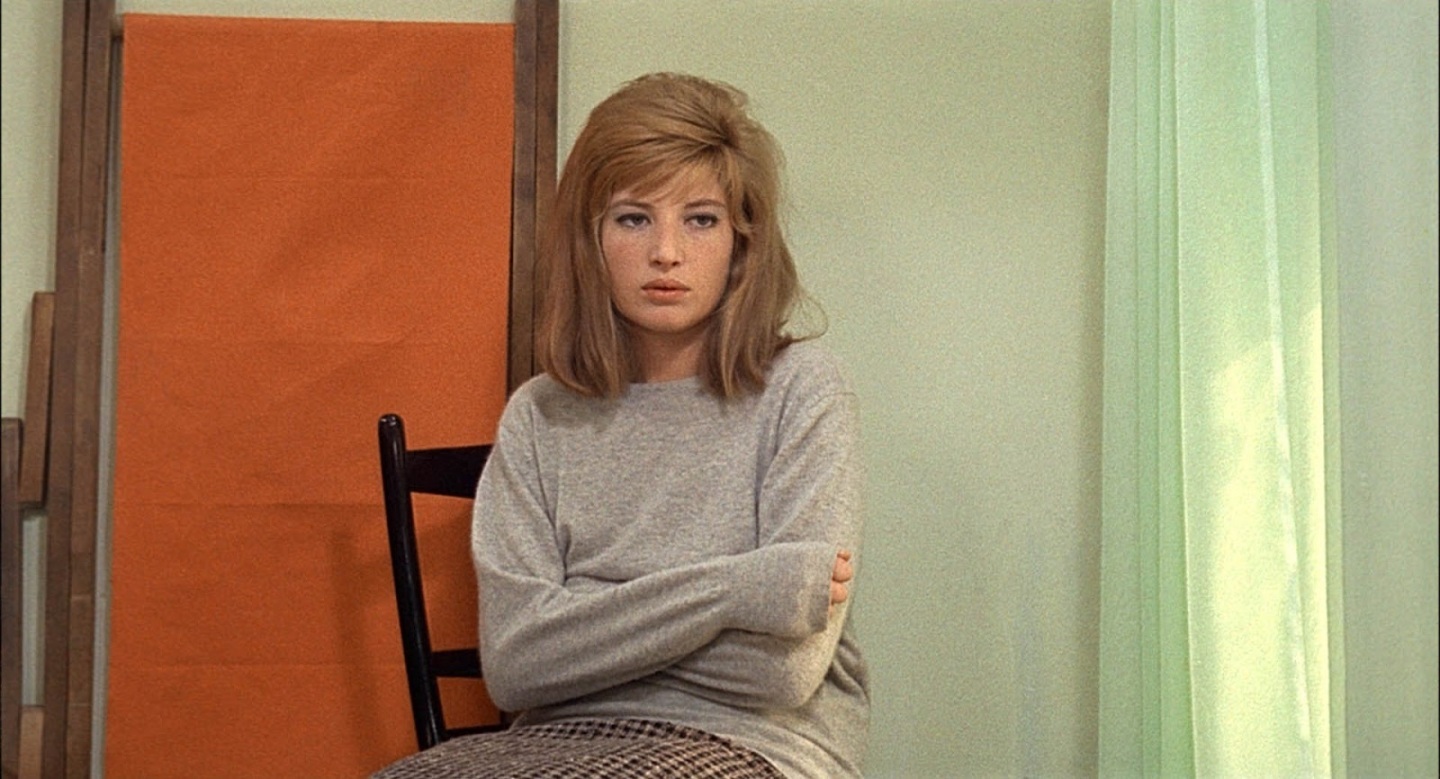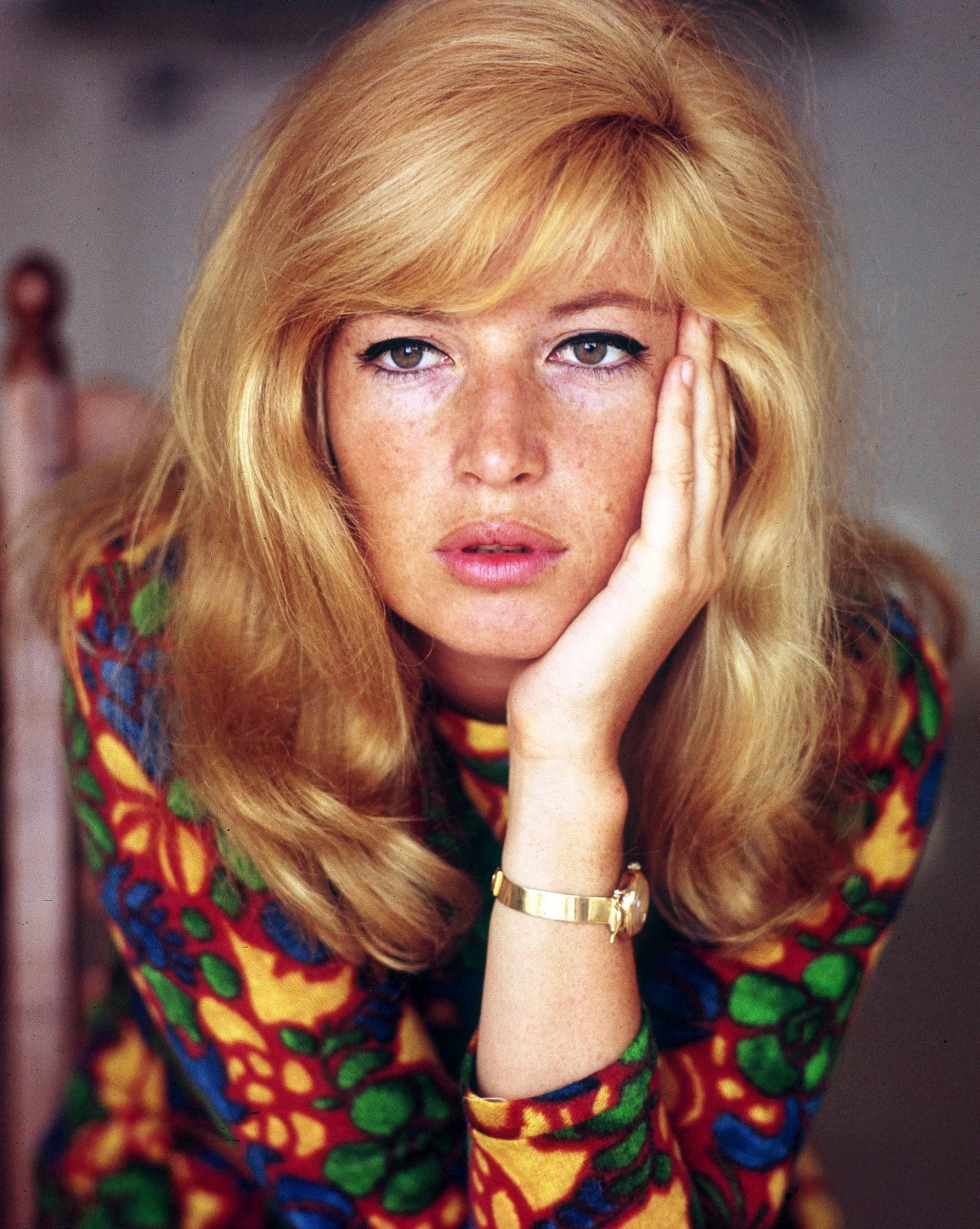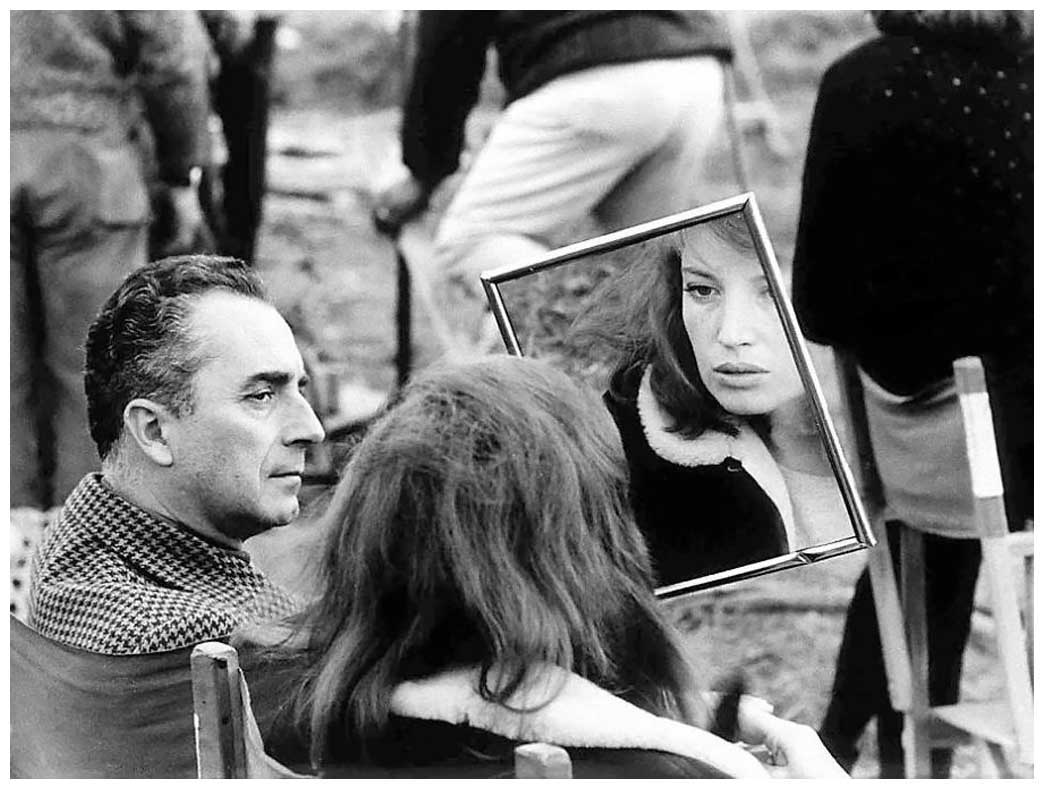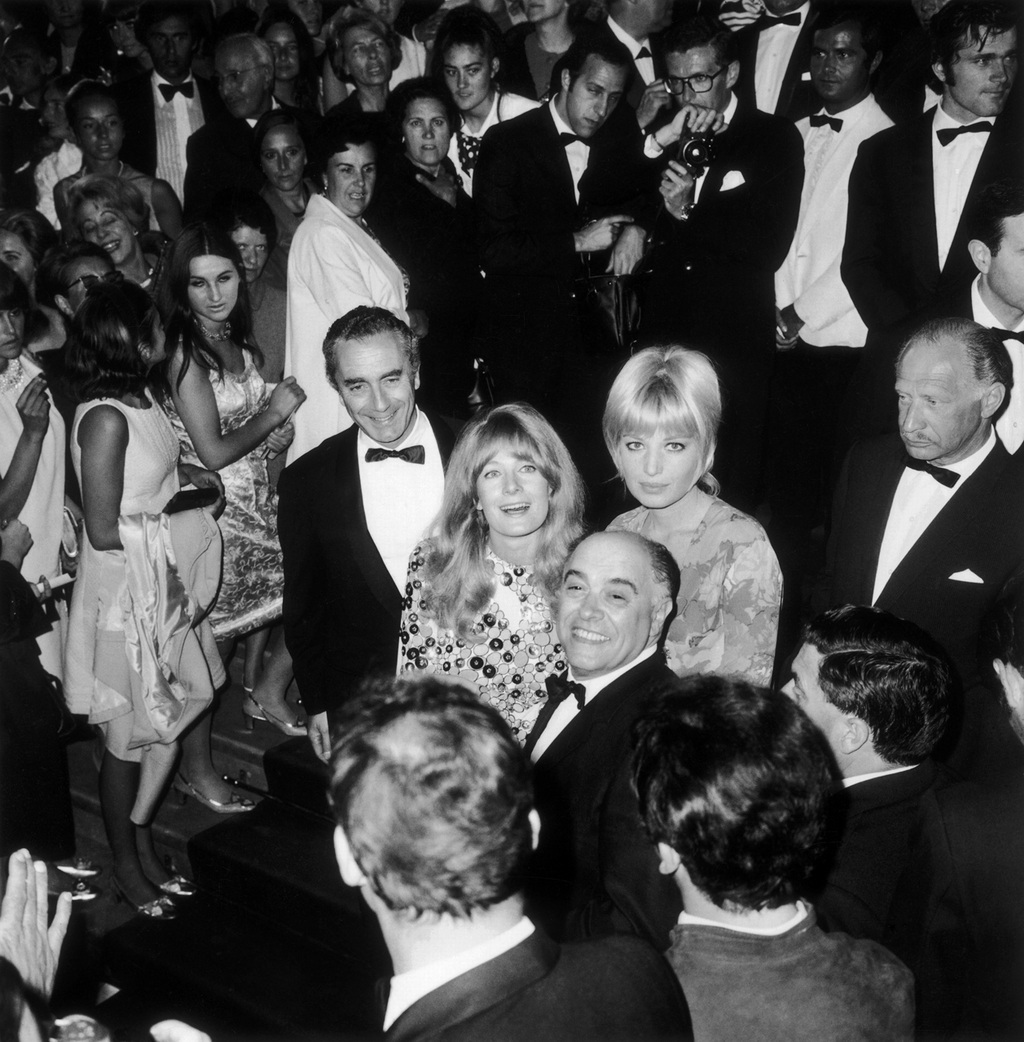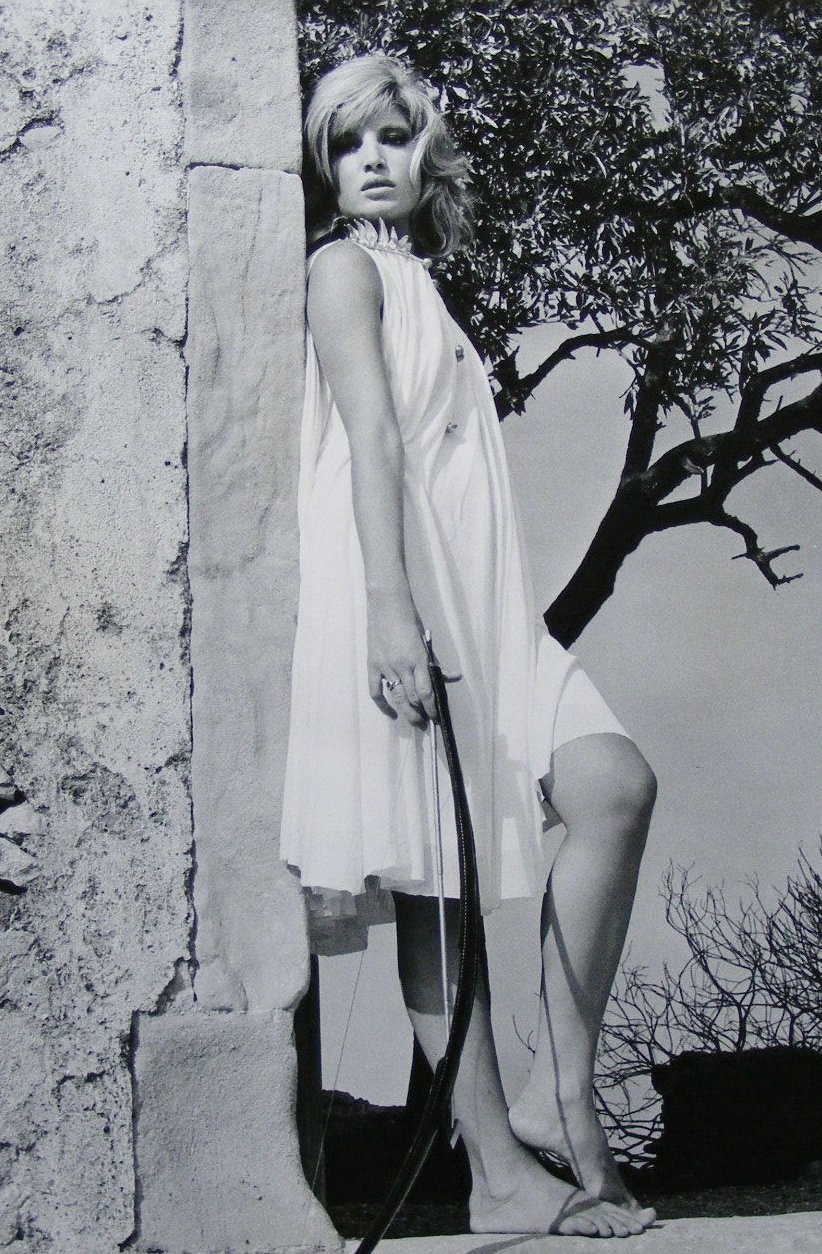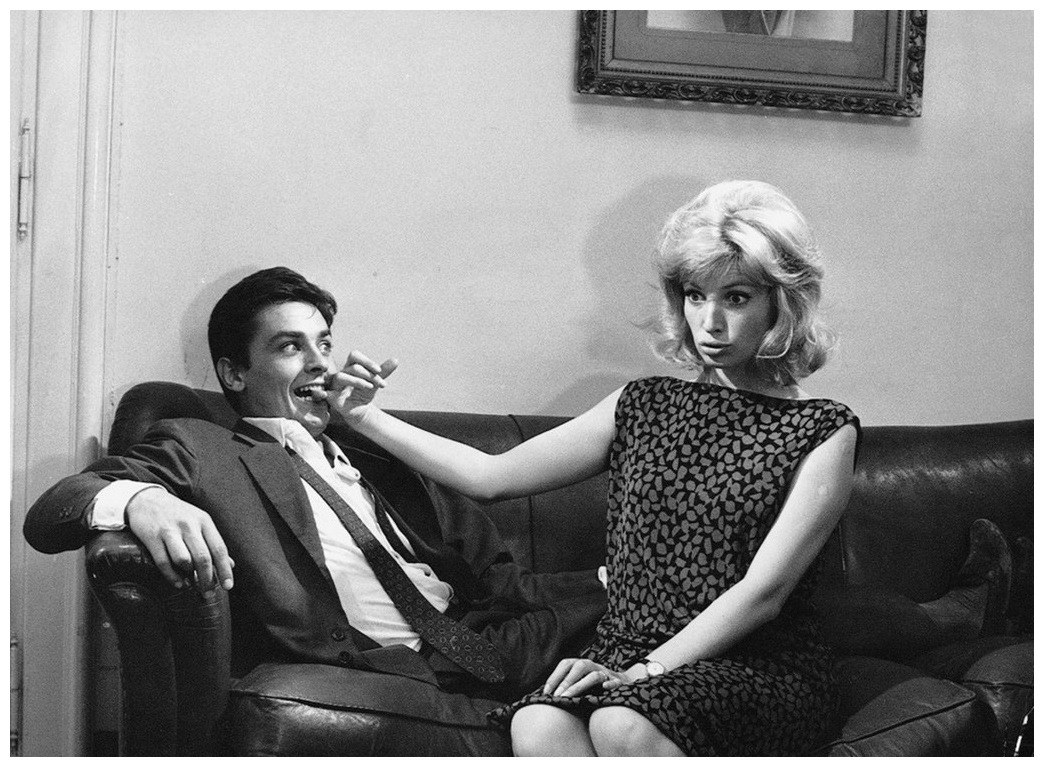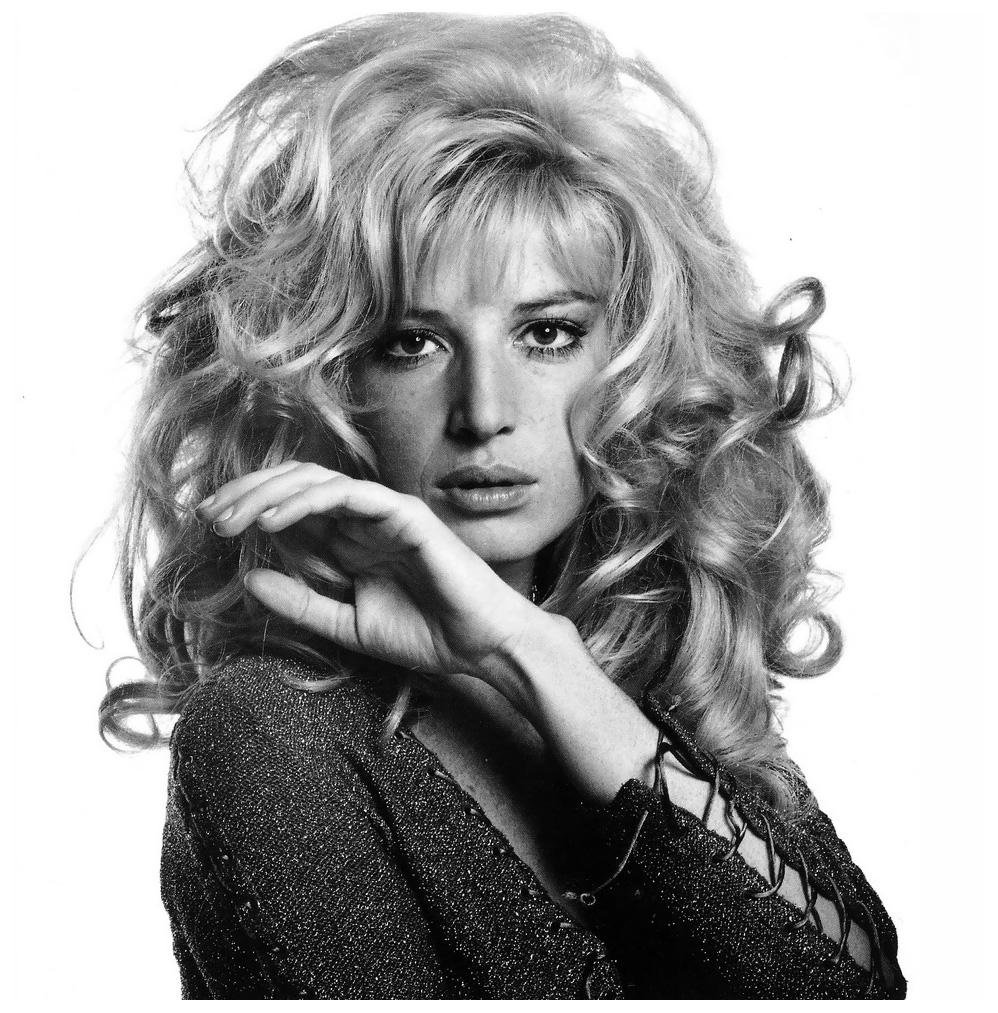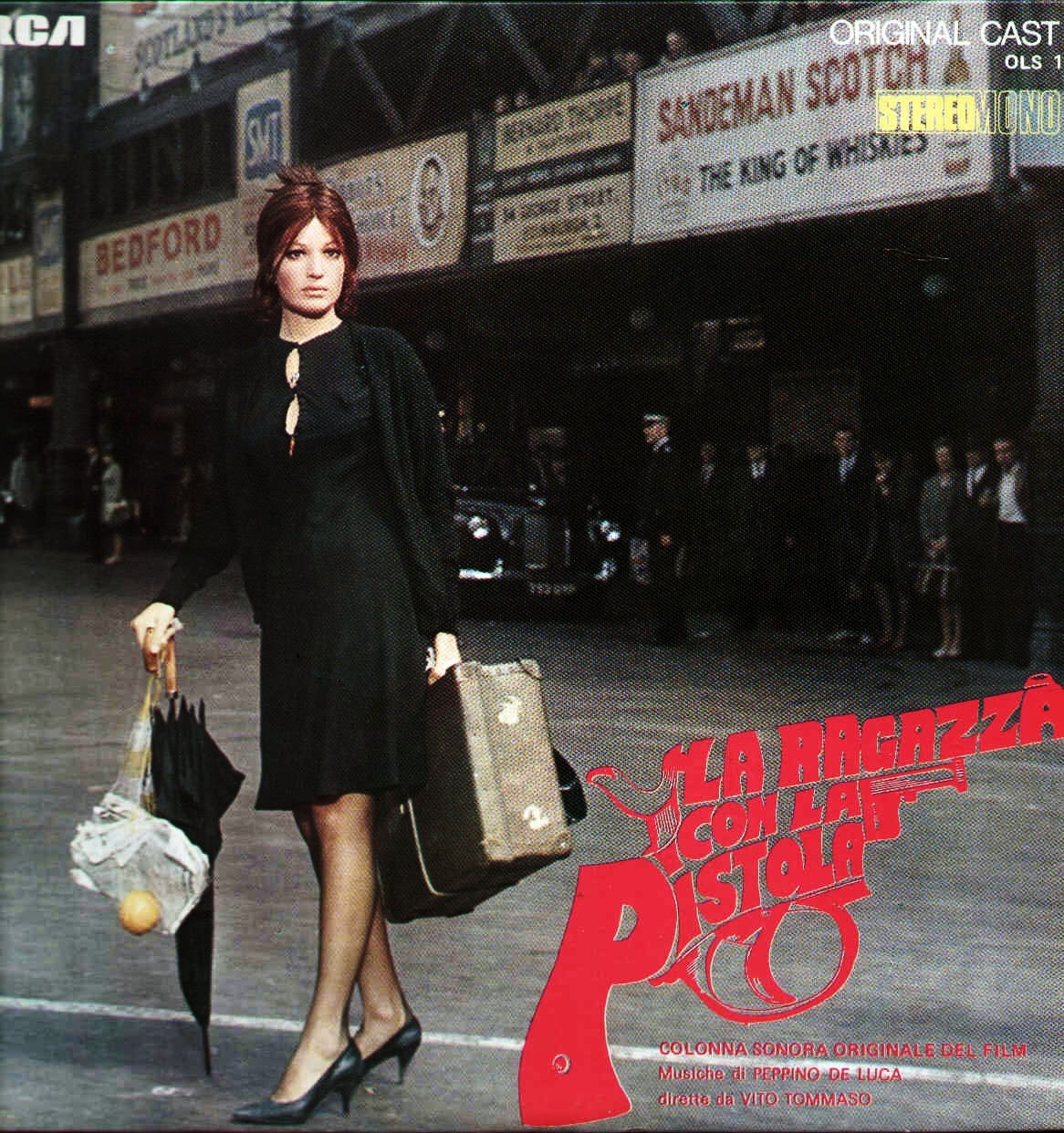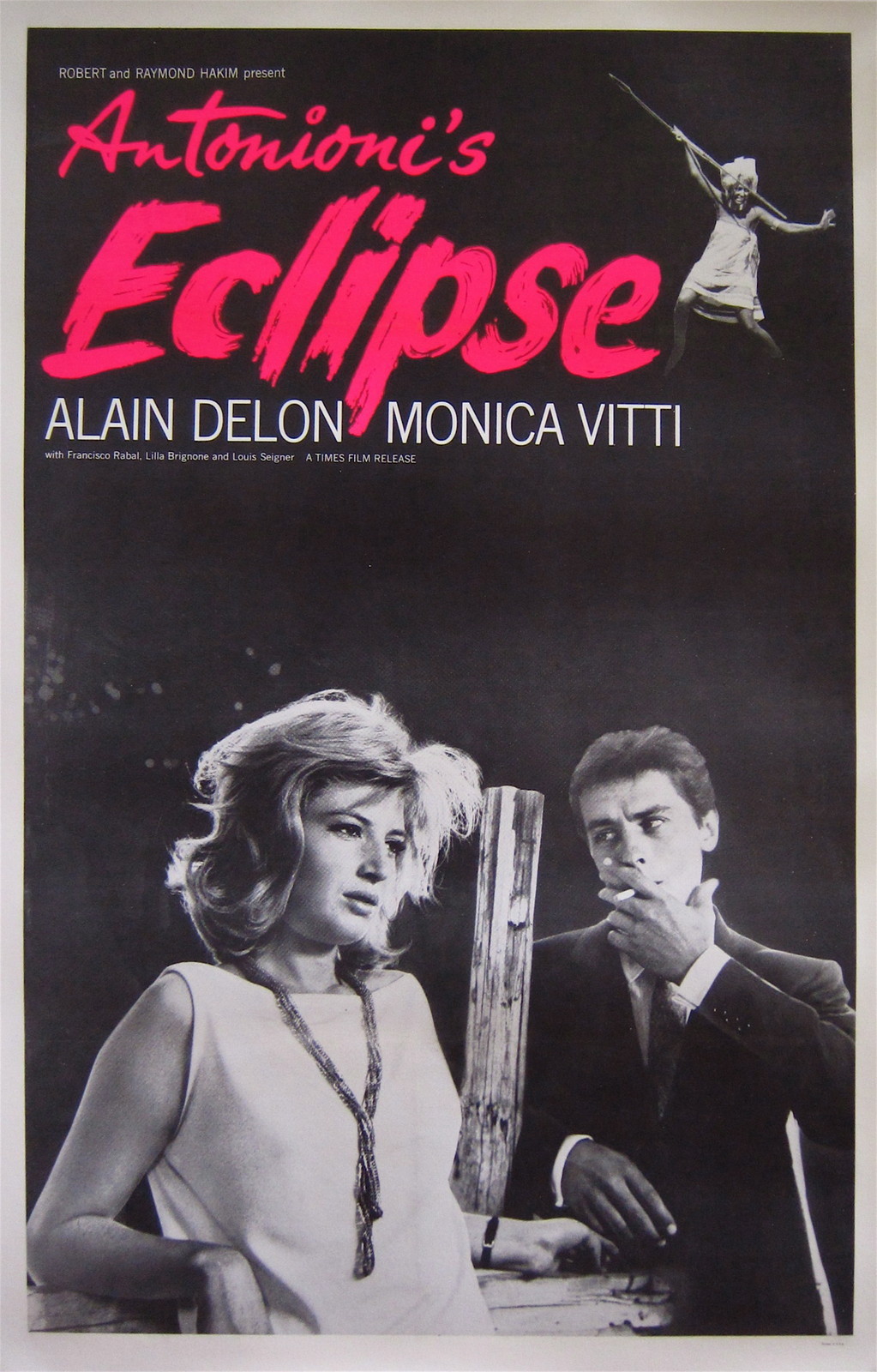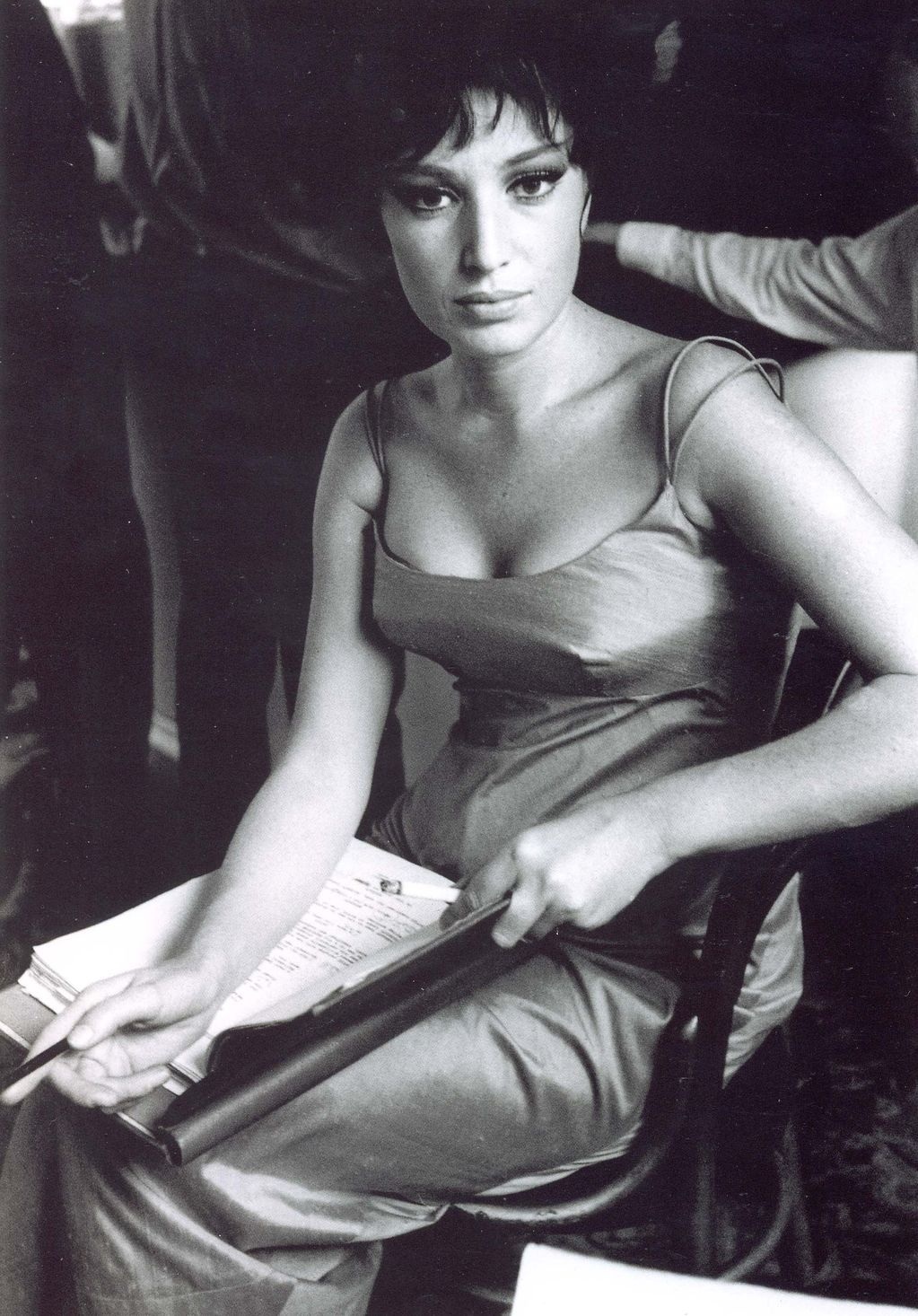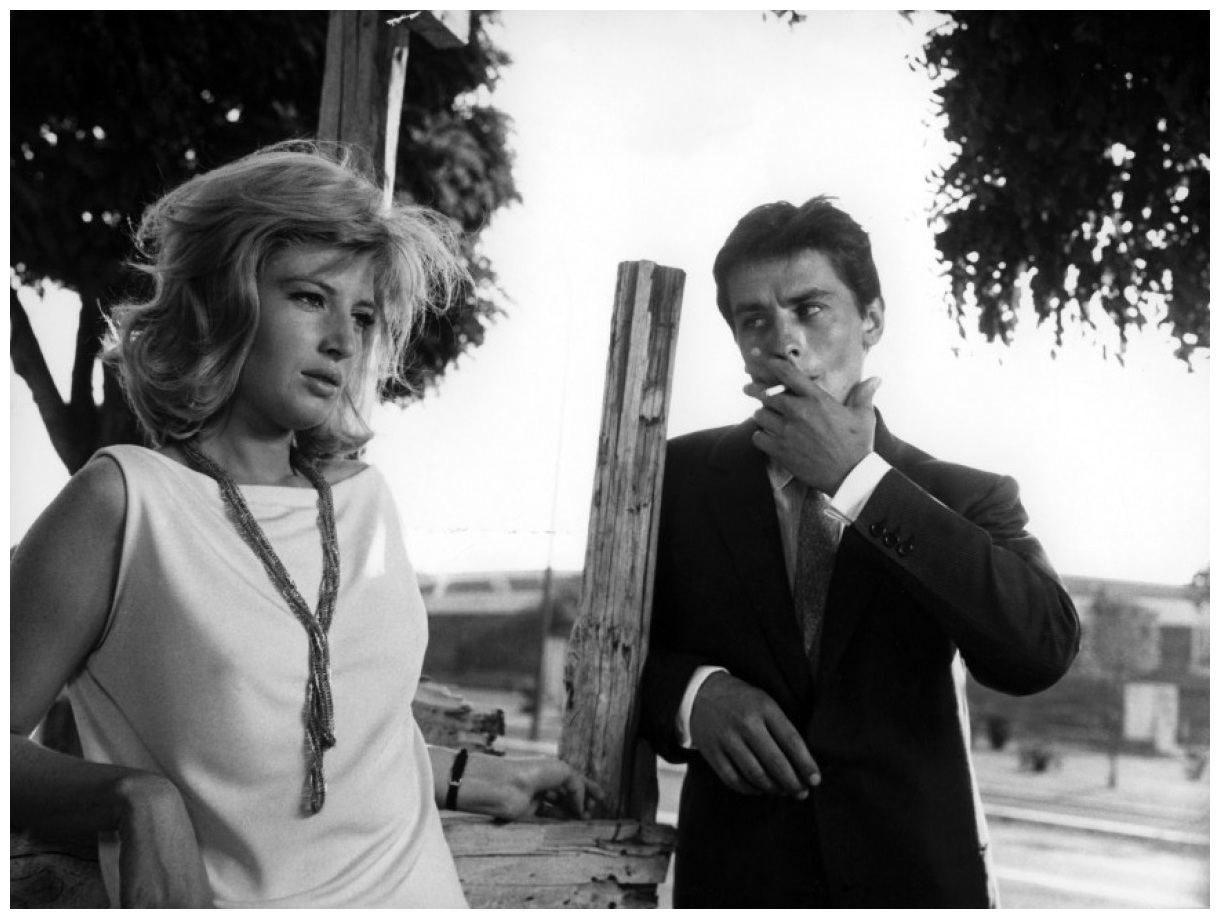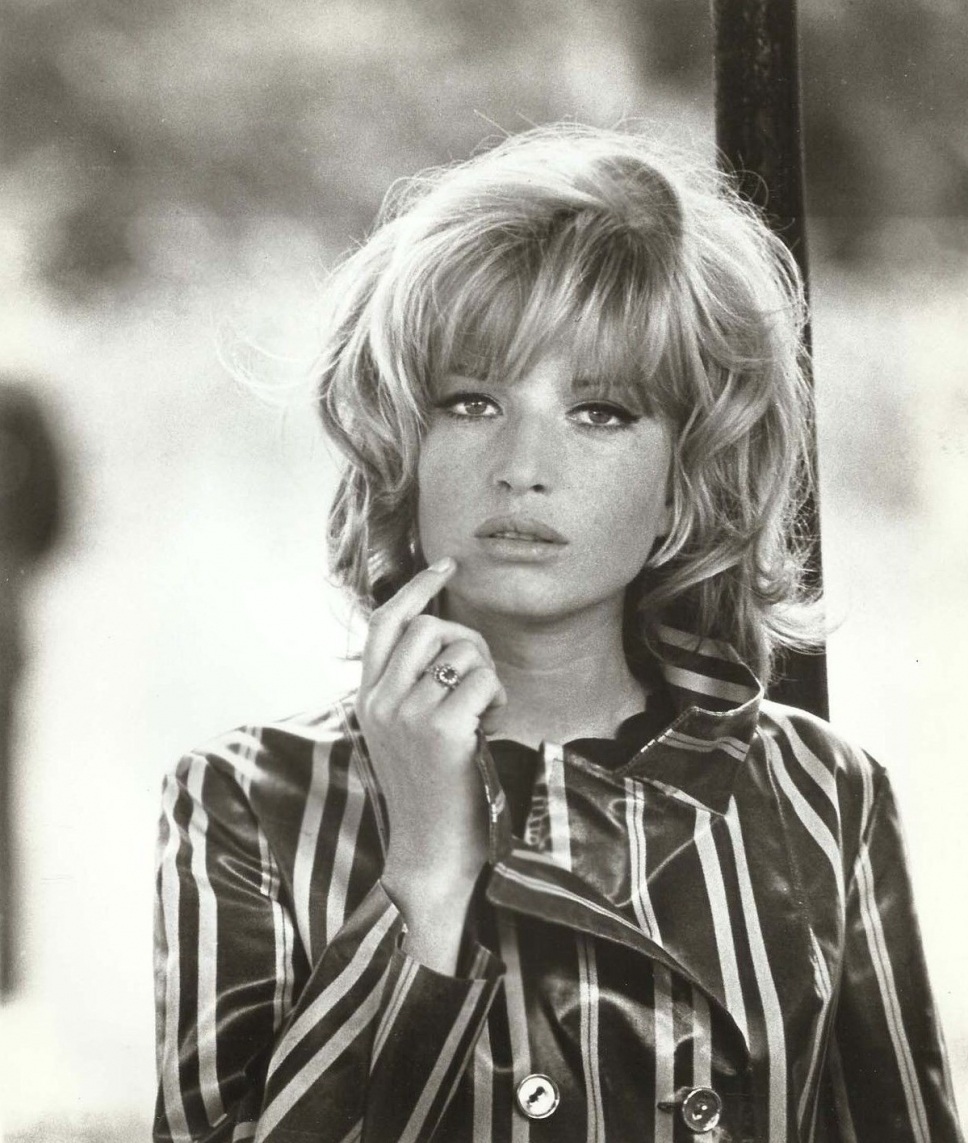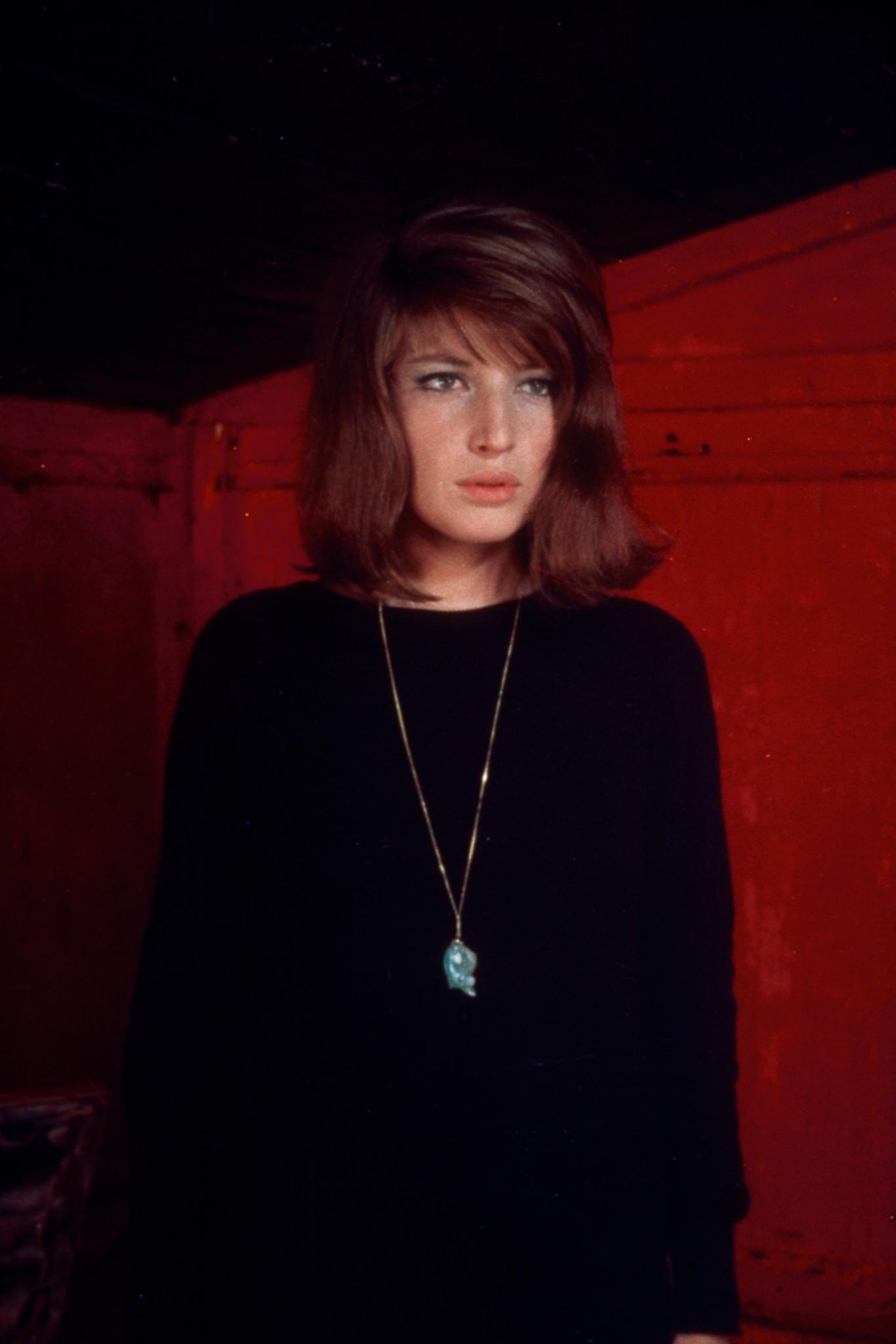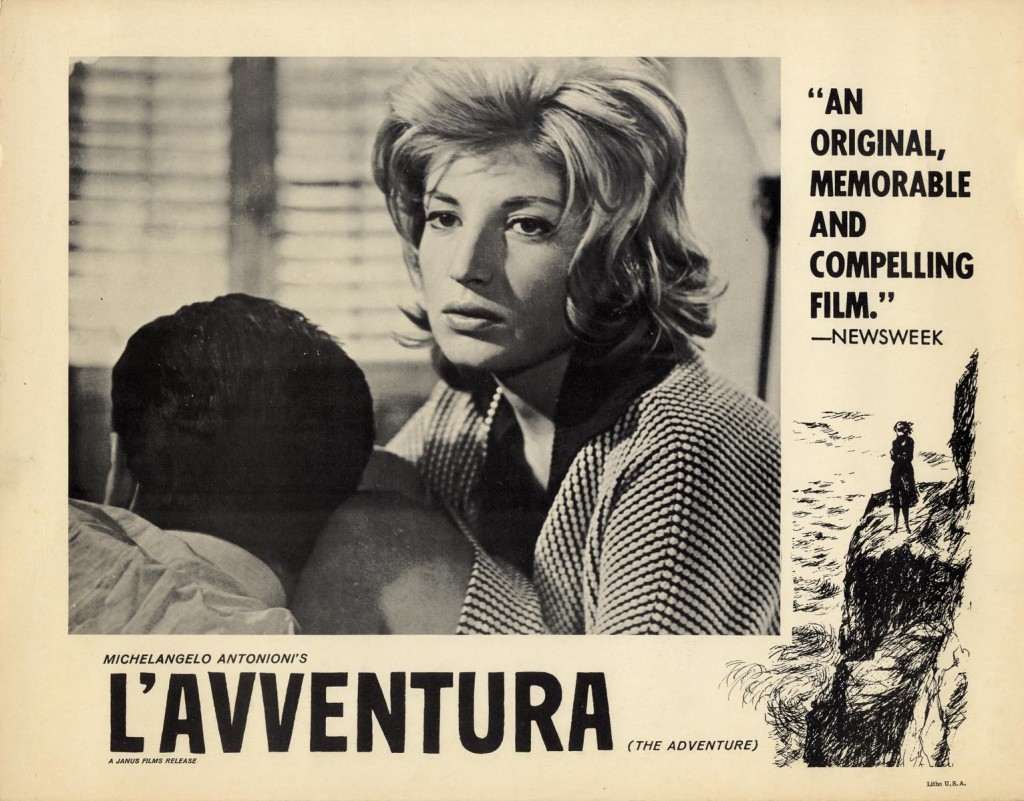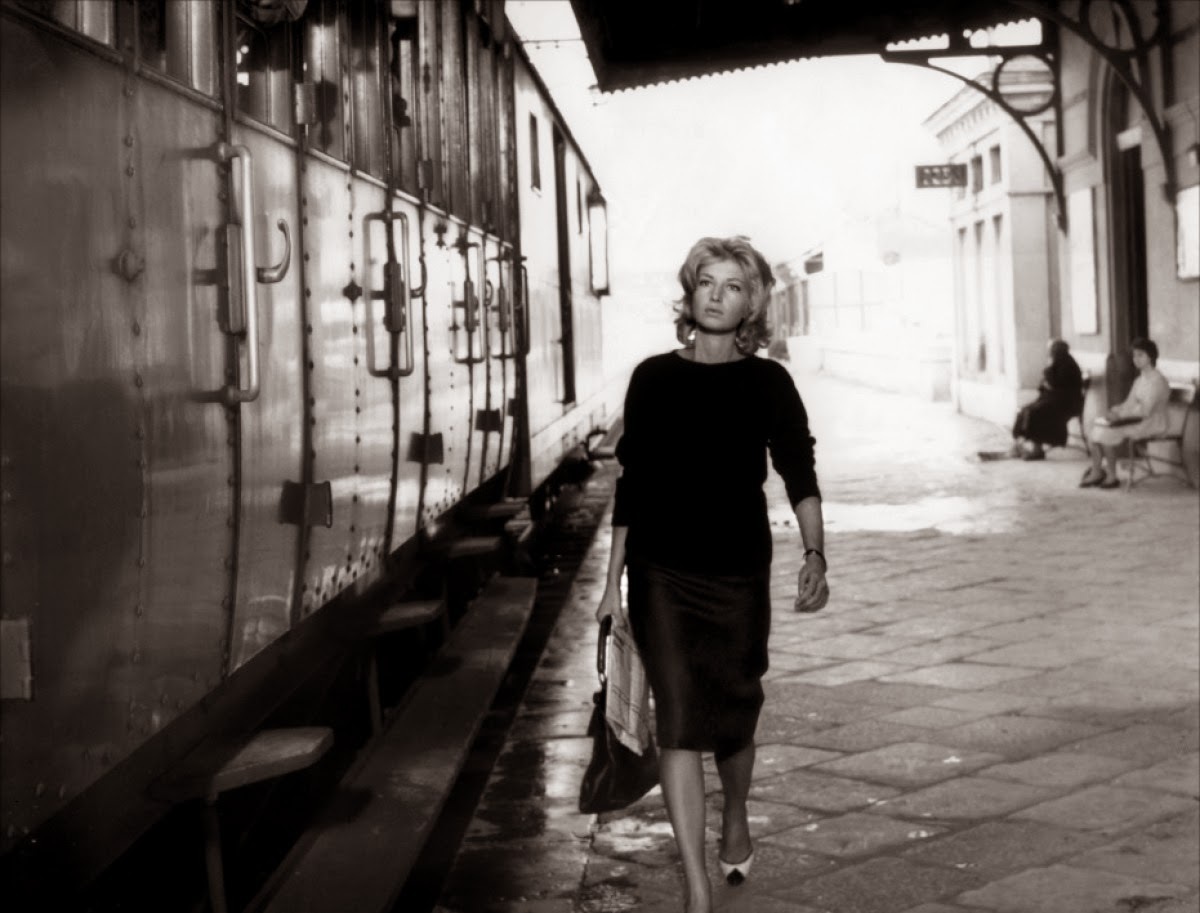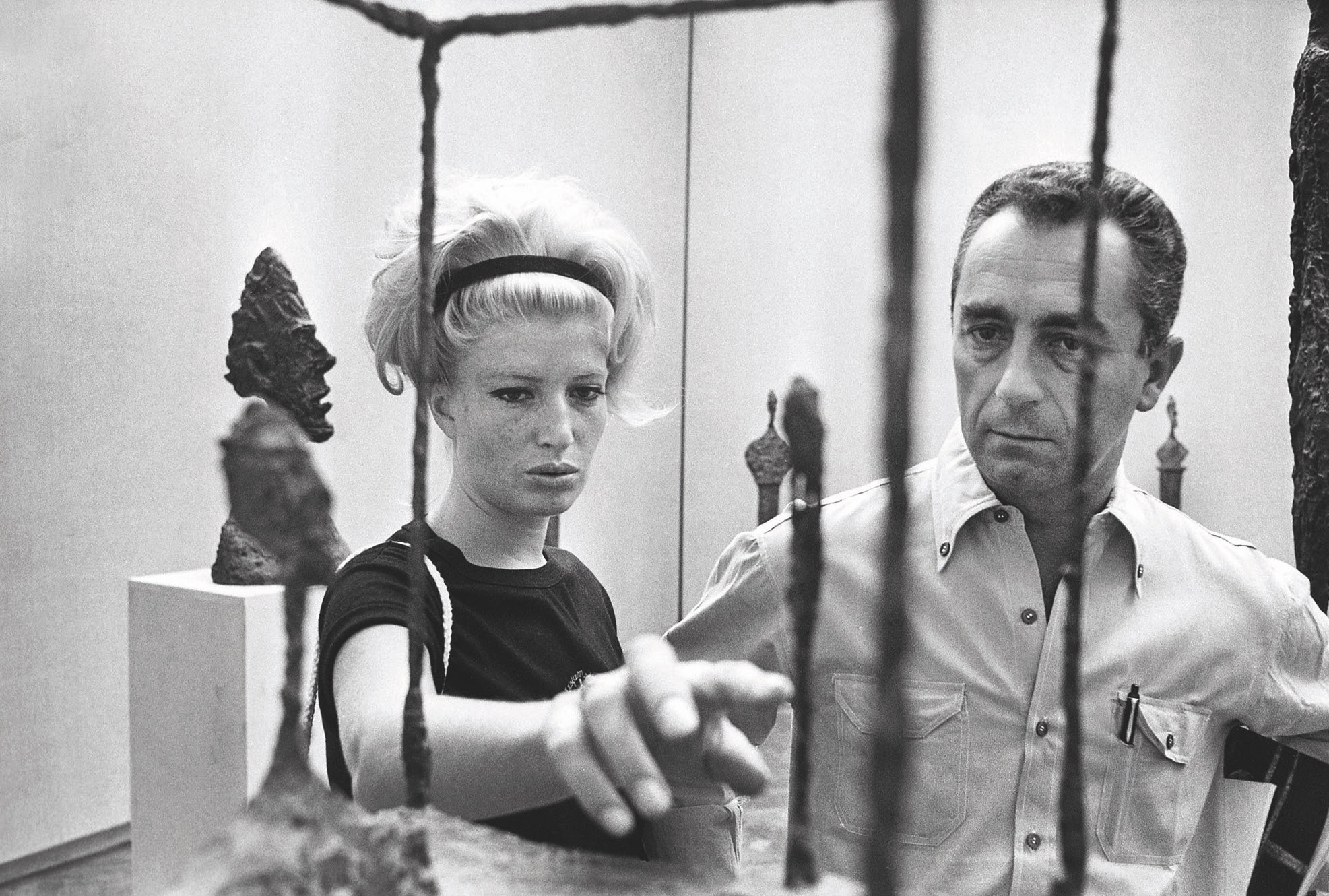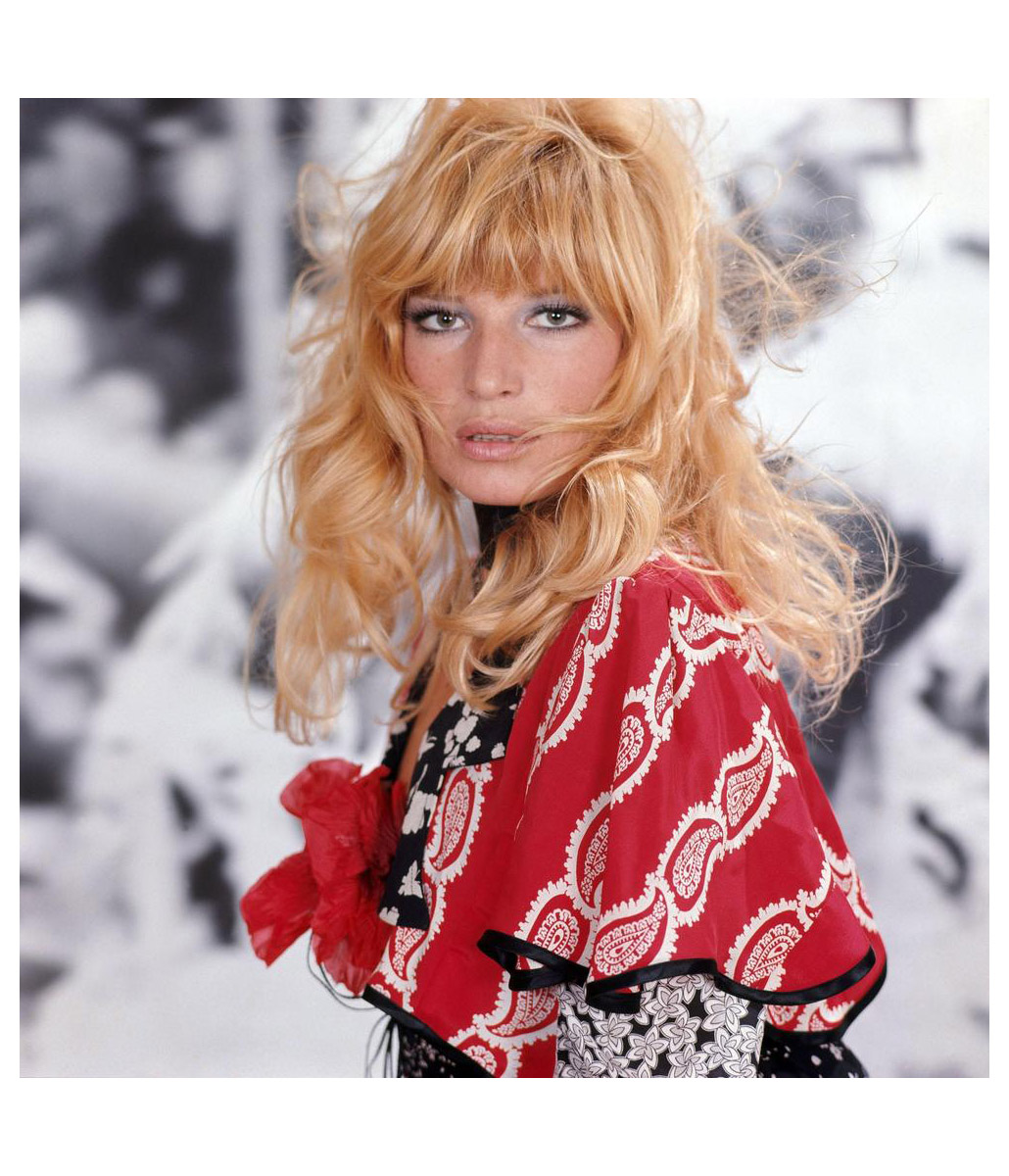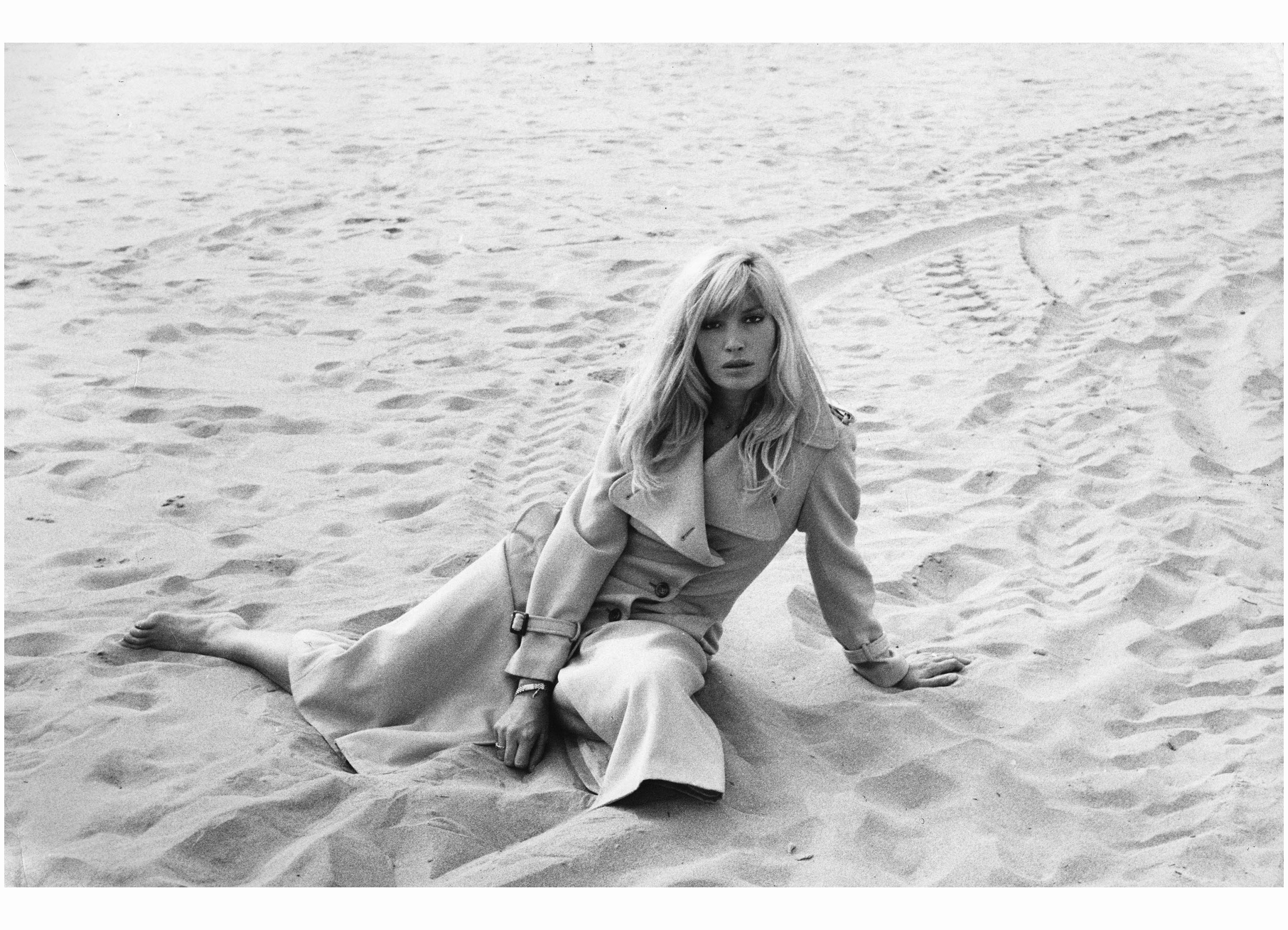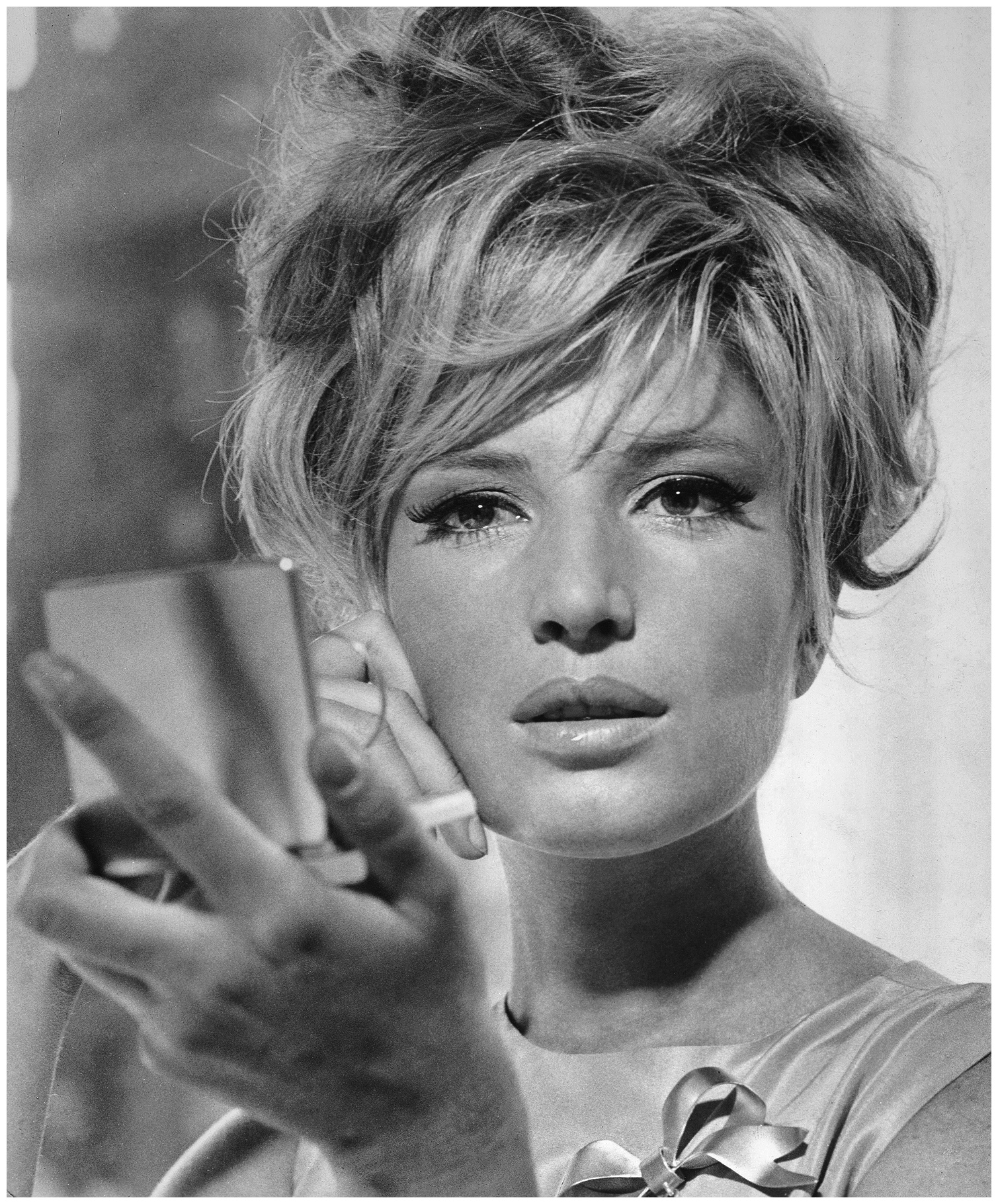
Monica Vitti looking at herself in the mirror in a scene from the film ‘Modesty Blaise’, 1966. Director Joseph Losey. 1966
The world was properly introduced to the extraordinary Monica Vitti with L’Avventura in 1960. A film that was initially booed by the audience at the 1960 Cannes Film Festival. Vitti and Antonioni fled the cinema. After a petition for a second showing it eventually won a Special Jury Prize ‘for the beauty of its images and for seeking to create a new film language.’
Monica Vitti was born Maria Luisa Ceciarelli in Rome in 1931 and still best known for her starring roles in films directed by Michelangelo Antonioni during the early 1960s. She studied acting at the Accademia d’Arte Drammatica and She toured Germany with an Italian acting troupe and her first stage appearance in Rome was for a production of Niccolò Machiavelli’s La Mandragola. In 1957 she joined Michelangelo Antonioni’s Teatro Nuovo di Milano and in 1959 played a leading role in L’avventura. Developed from a story by Antonioni, the film is about a young woman’s disappearance during a boating trip in the Mediterranean. During the subsequent search for the missing woman her lover and her best friend Claudia, played by Vitti become attracted to each other. Near the beginning of the film a conversation almost captures what the film is trying to say – the ‘allure of absence’: “It’s convenient,” Claudia’s friend tells her while debating the pros and cons of a long-distance relationship, “because you can imagine whatever you like, whereas when somebody’s right in front of you … that’s all you get.”
Often described as ethereal, detached, cool or aloof Vitti received critical praise for starring roles in subsequent Antonioni films La Notte (Night, 1961), L’Eclisse (Eclipse, 1962) and Il Deserto Rosso (Red Desert, 1964). After her relationship with Antonioni ended, the two did not work together again until Il mistero di Oberwald (1980).
Vitti’s made only two English language films, the first of which was Modesty Blaise released in 1966 a James Bond spy spoof with Terence Stamp and Dirk Bogarde It was loosely based upon the popular comic strip Modesty Blaise by Peter O’Donnell and was a modest success at the time.
After working with Antonioni, Vitti changed focus and began making comedies, working with director Mario Monicelli on many films. Vitti won five David di Donatello Awards for Best Actress, seven Italian Golden Globes for Best Actress, the Career Golden Globe, and the Venice Film Festival Career Golden Lion Award.
In 2011, it was stated that Alzheimer’s disease had “removed her from the public gaze for the last 15 years.”
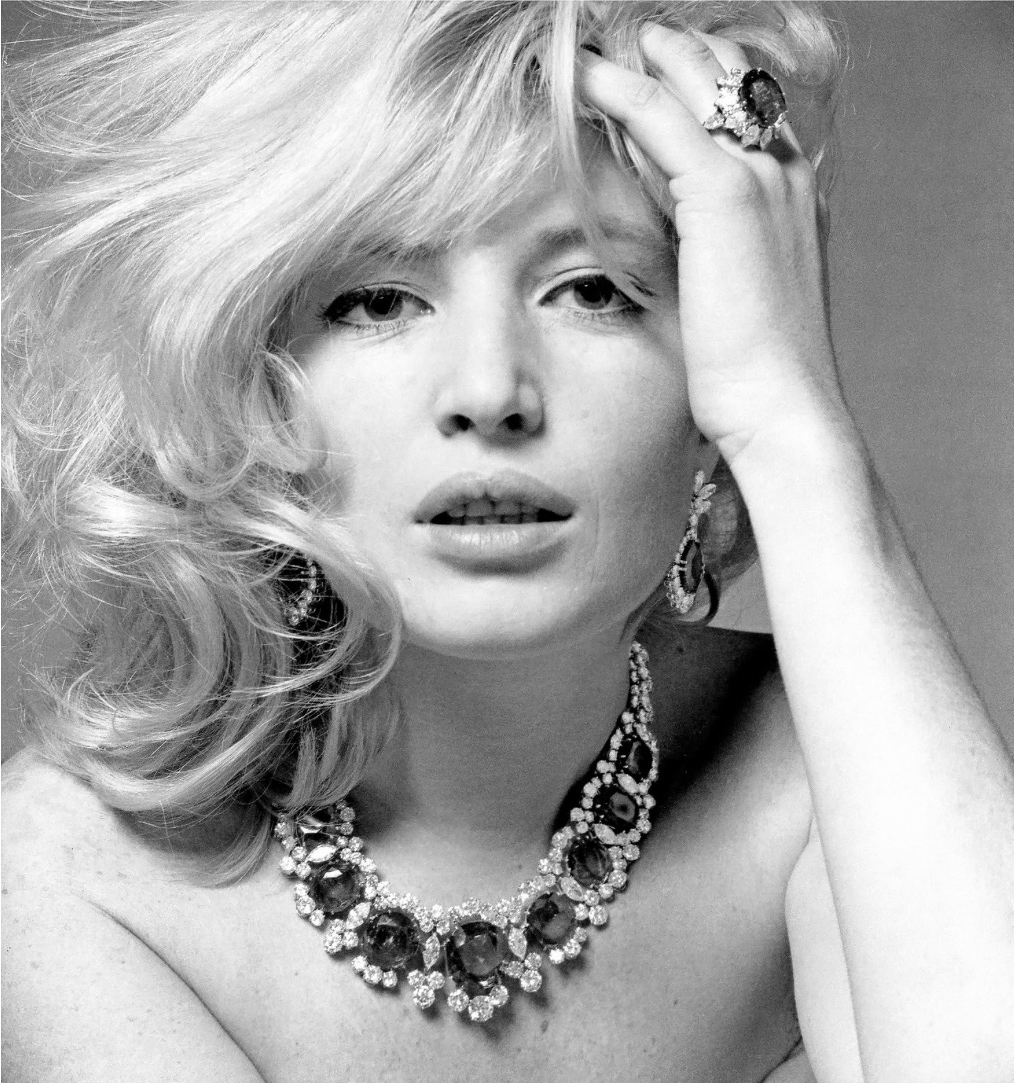
Monica Vitti wearing the Bulgari “Seven Wonders” (named for the seven magnificent Columbian emeralds) necklace of platinum, emeralds and diamonds,1965 Photo Karen Radkai
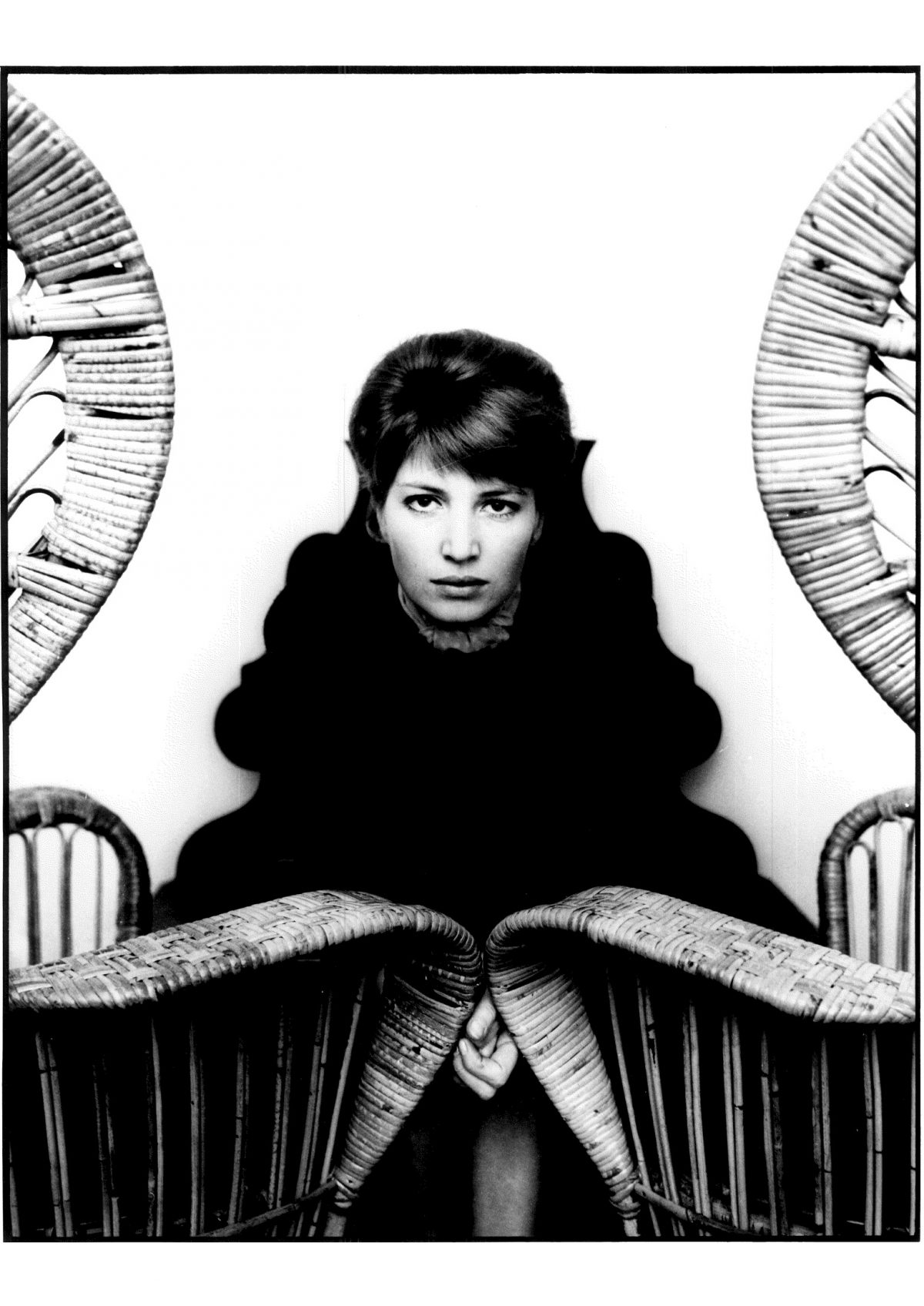
Monica Vitti 1962 photo Pierluigi Praturlon
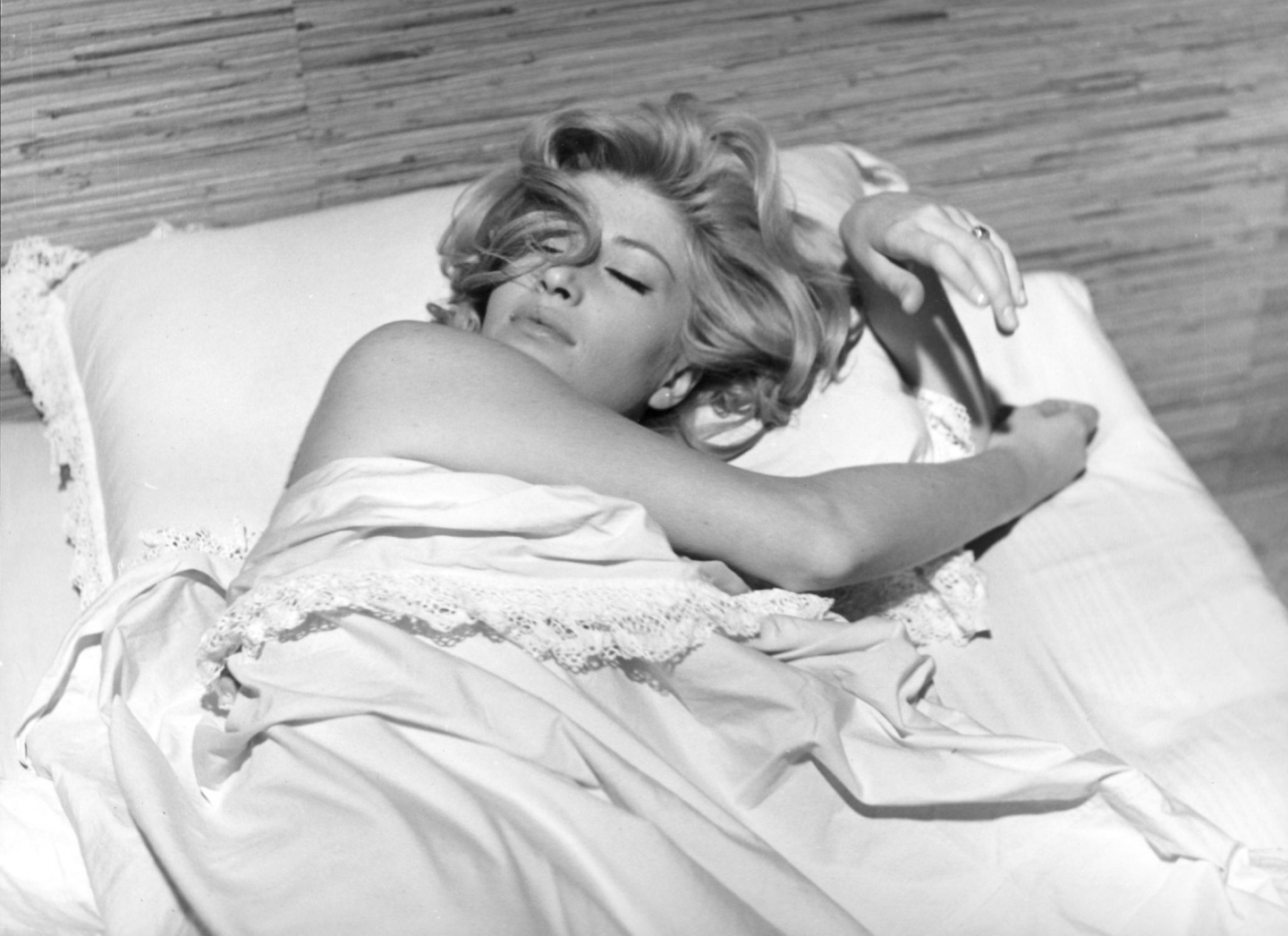
Still of Monica from L’Eclisse (Eclipse, 1962). The final part Antonioni’s trilogy begins with a separation. After a long night of debate, Vittoria (Monica Vitti) leaves her boyfriend Riccardo. Through her mother, she meets the broker Pietro (Alain Delon). The new relationship is ill-fated because of the inability to communicate and lack of commitment to the relationship. In a long closing sequence, Antonioni films a city that is empty of people, the symbol of a world that has forfeited humanity.
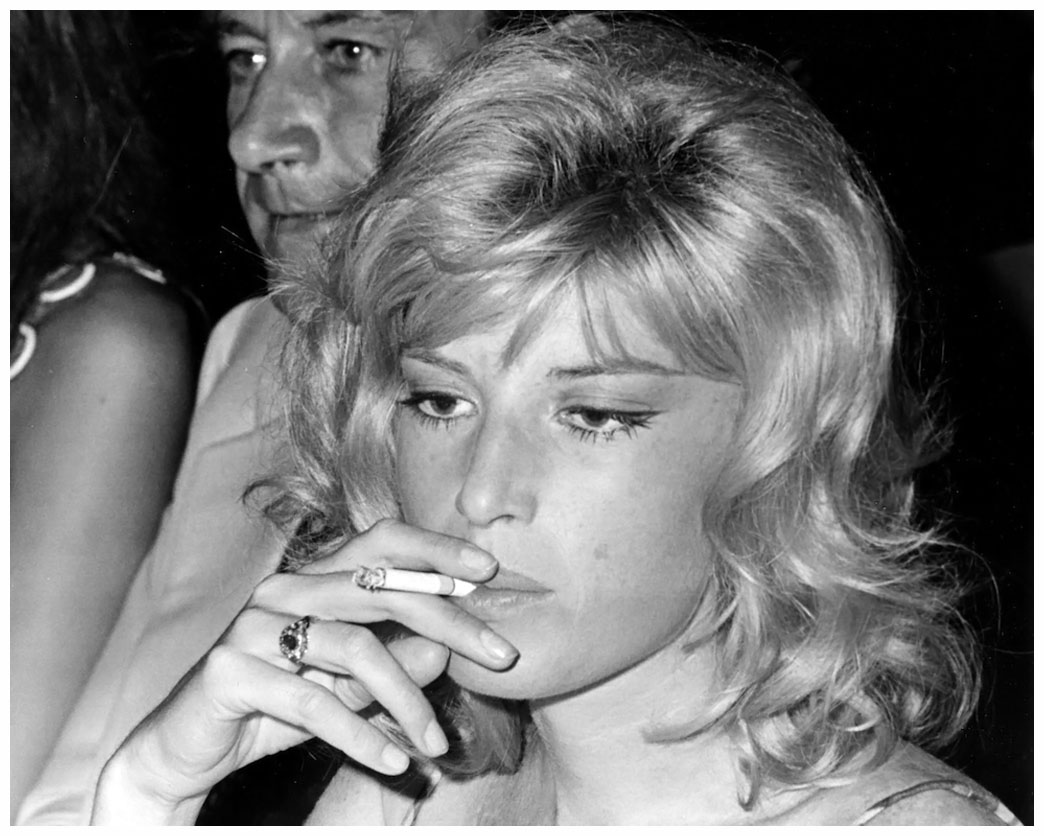
Portrait of Italian actress Monica Vitti smoking a cigarette and producer director Gualtiero Jacopetti (partially obscured behind Vitti) attend a party for movie celebrities in a fashionable night club in Rome, Italy, July 6, 1968. (AP Photo/Gianni Foggia)
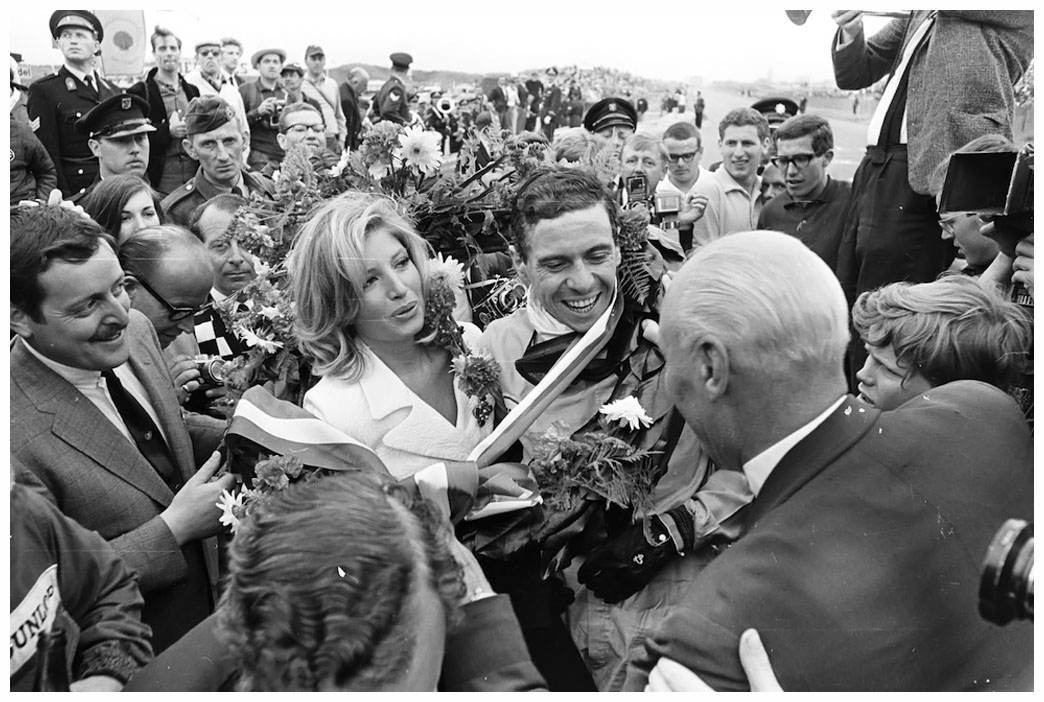
19th July 1965: Scottish racing driver Jim Clark being congratulated by the Italian actress Monica Vitti after winning the Dutch grand prix. (Photo by Victor Blackman/Express/Getty Images)
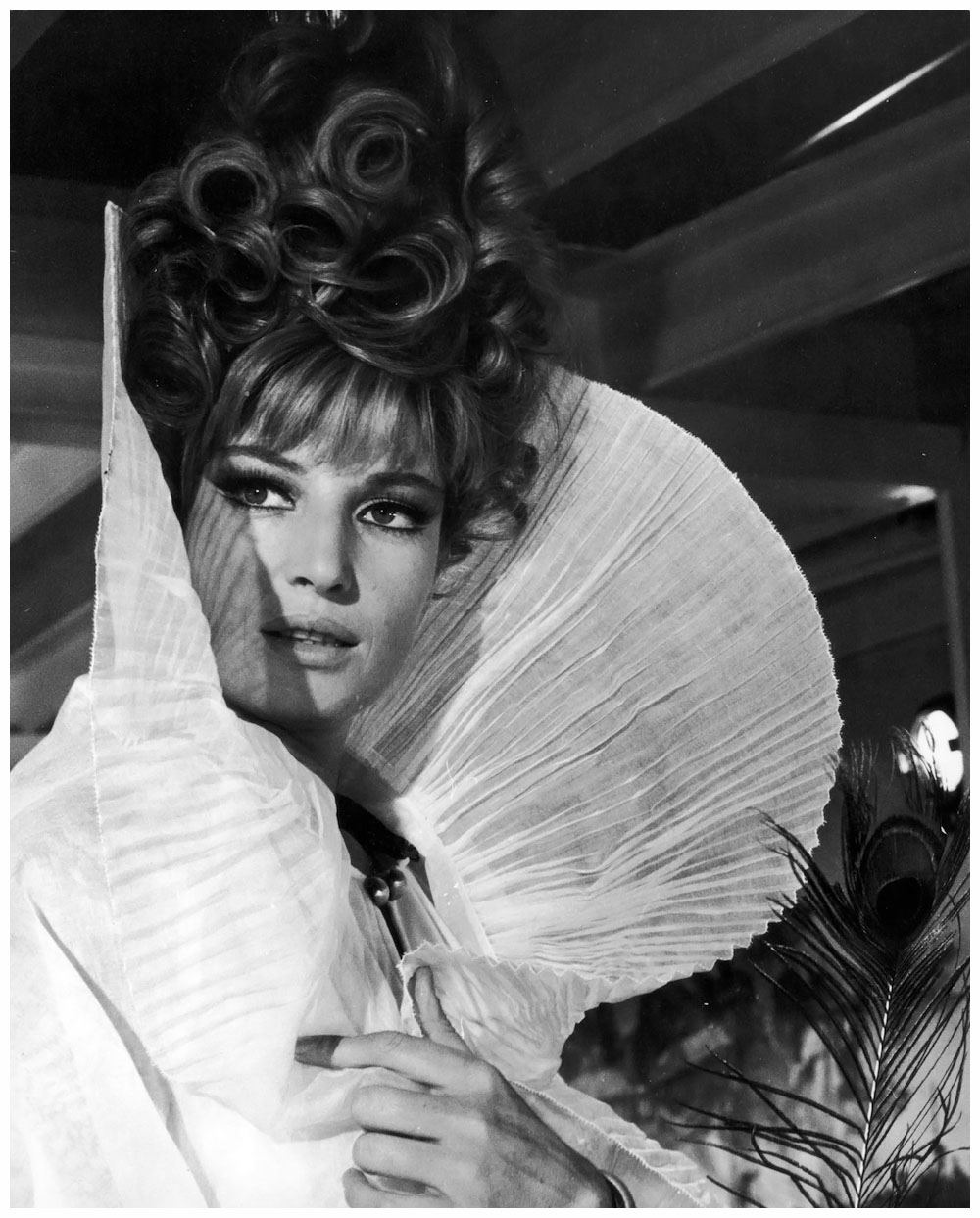
Italian actress Monica Vitti stars in the lead role of Joseph Losey’s film ‘Modesty Blaise’, which was released in 1966. (Photo by Stephan C Archetti/Keystone/Hulton Archive/Getty Images)
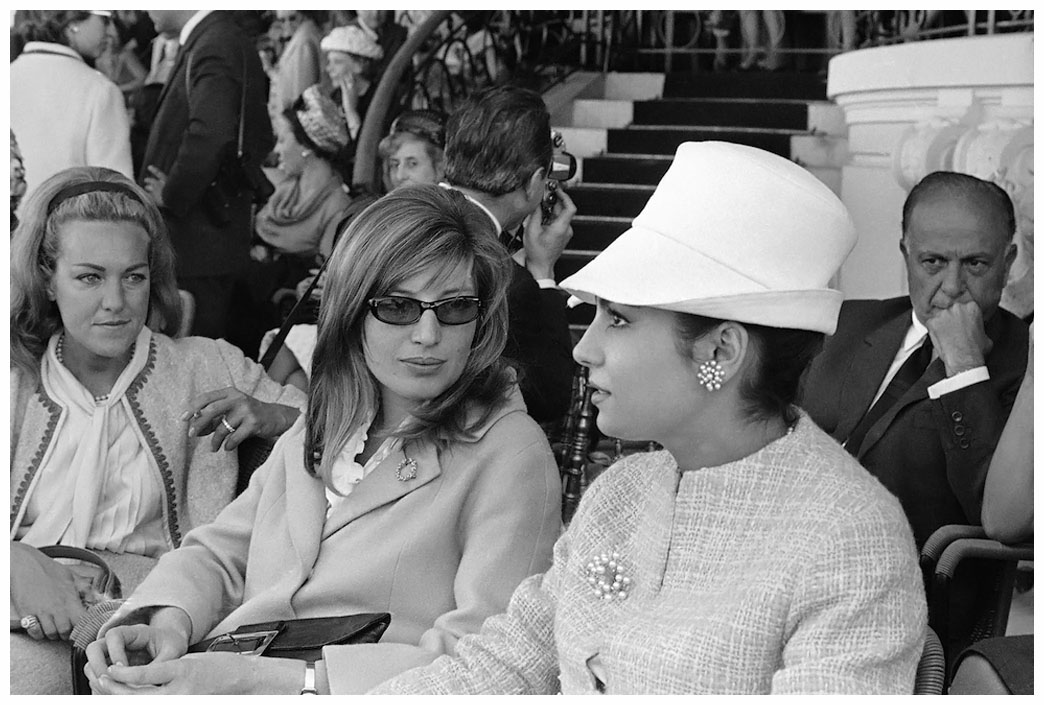
Italian actress Monica Vitti (left) and Rossana Schiaffino attend Rome’s Derby Horse Race at the Capannelle track in Rome on May 7, 1964. (AP Photo/Giulio Broglio)
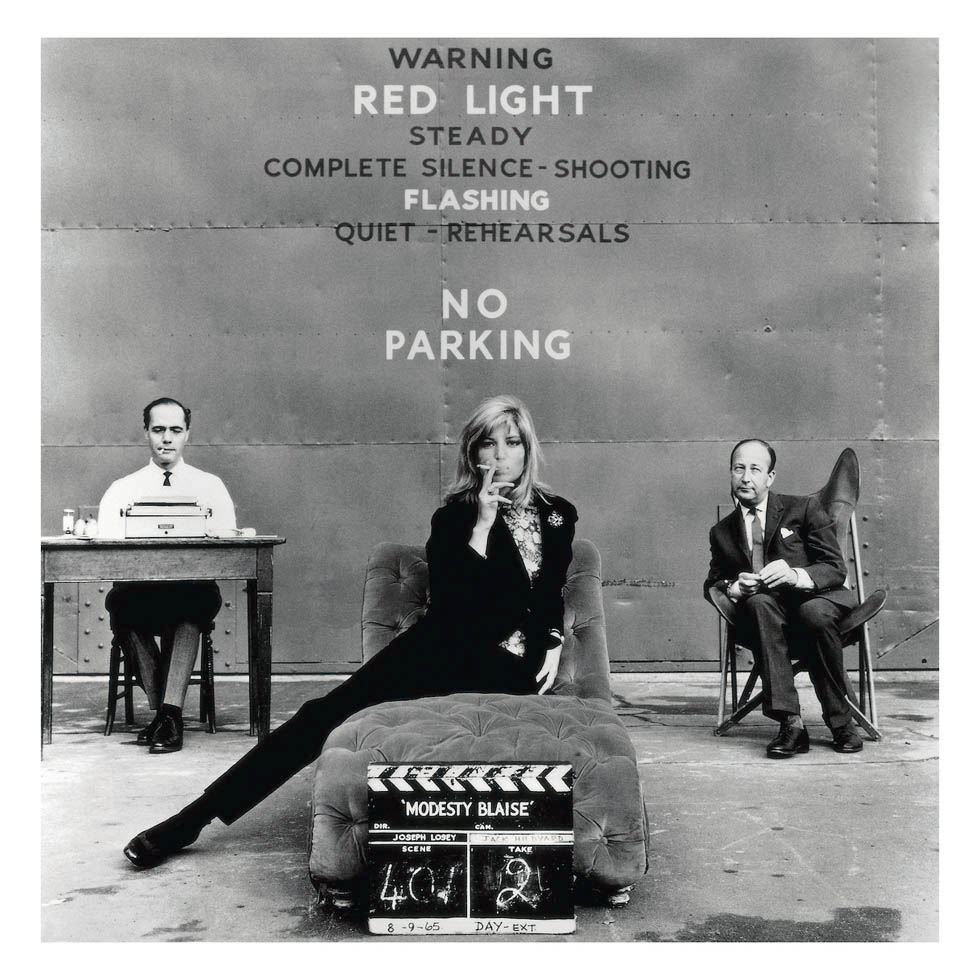
Monica Vitti on the set of Modesty Blaise. She is with Peter O’Donnell and Producer Joseph Janni. Photo by Terry O’Neill
Would you like to support Flashbak?
Please consider making a donation to our site. We don't want to rely on ads to bring you the best of visual culture. You can also support us by signing up to our Mailing List. And you can also follow us on Facebook, Instagram and Twitter. For great art and culture delivered to your door, visit our shop.
